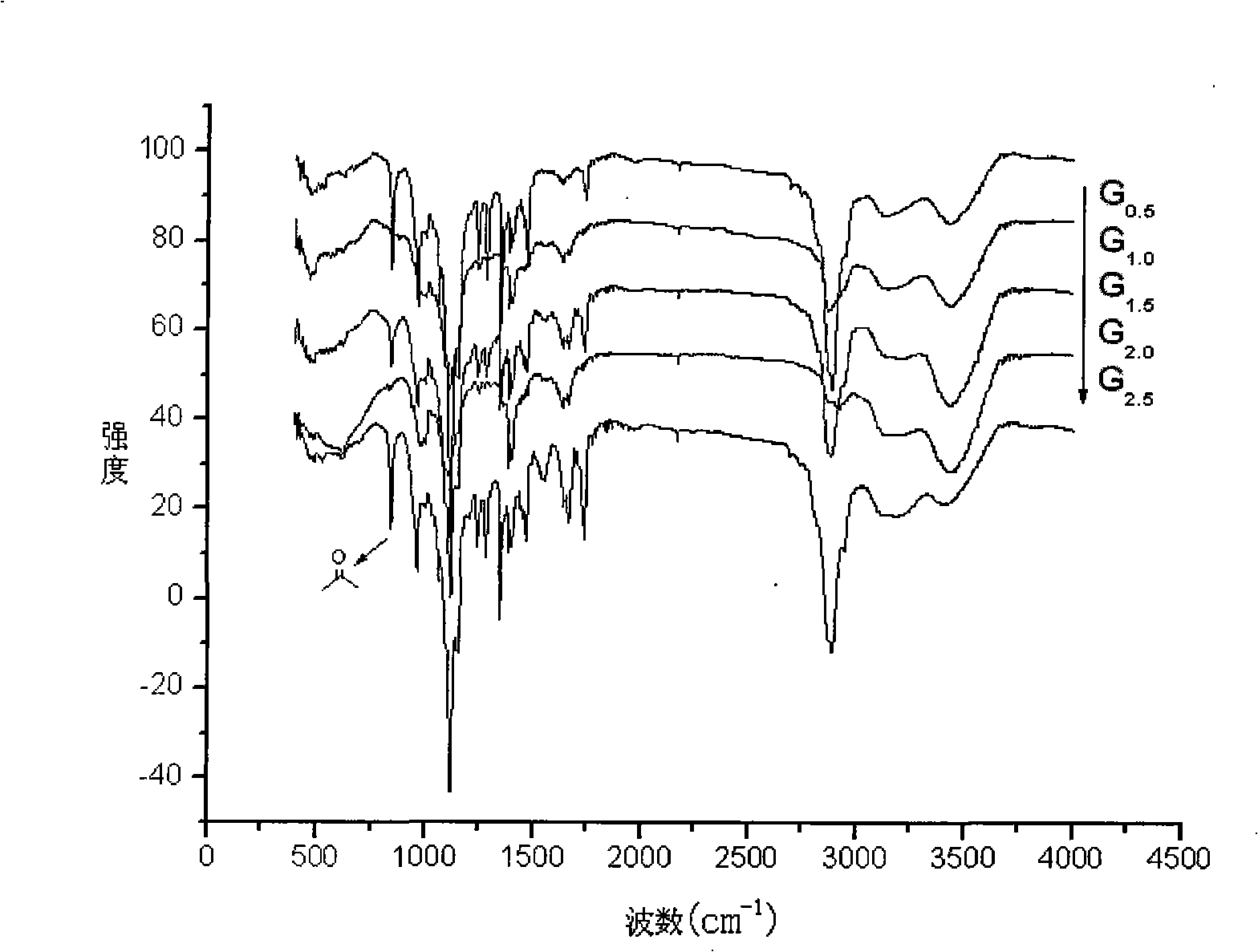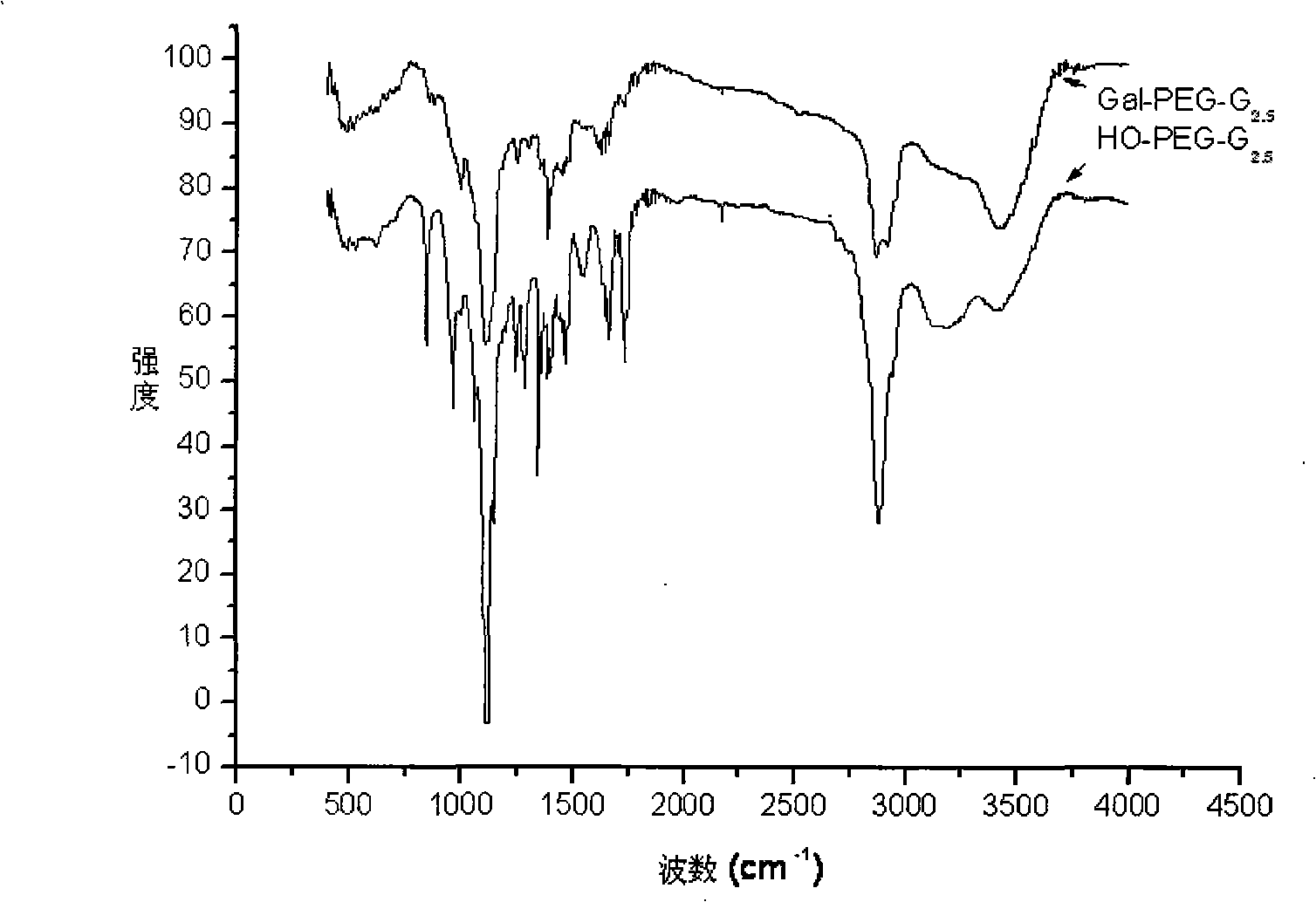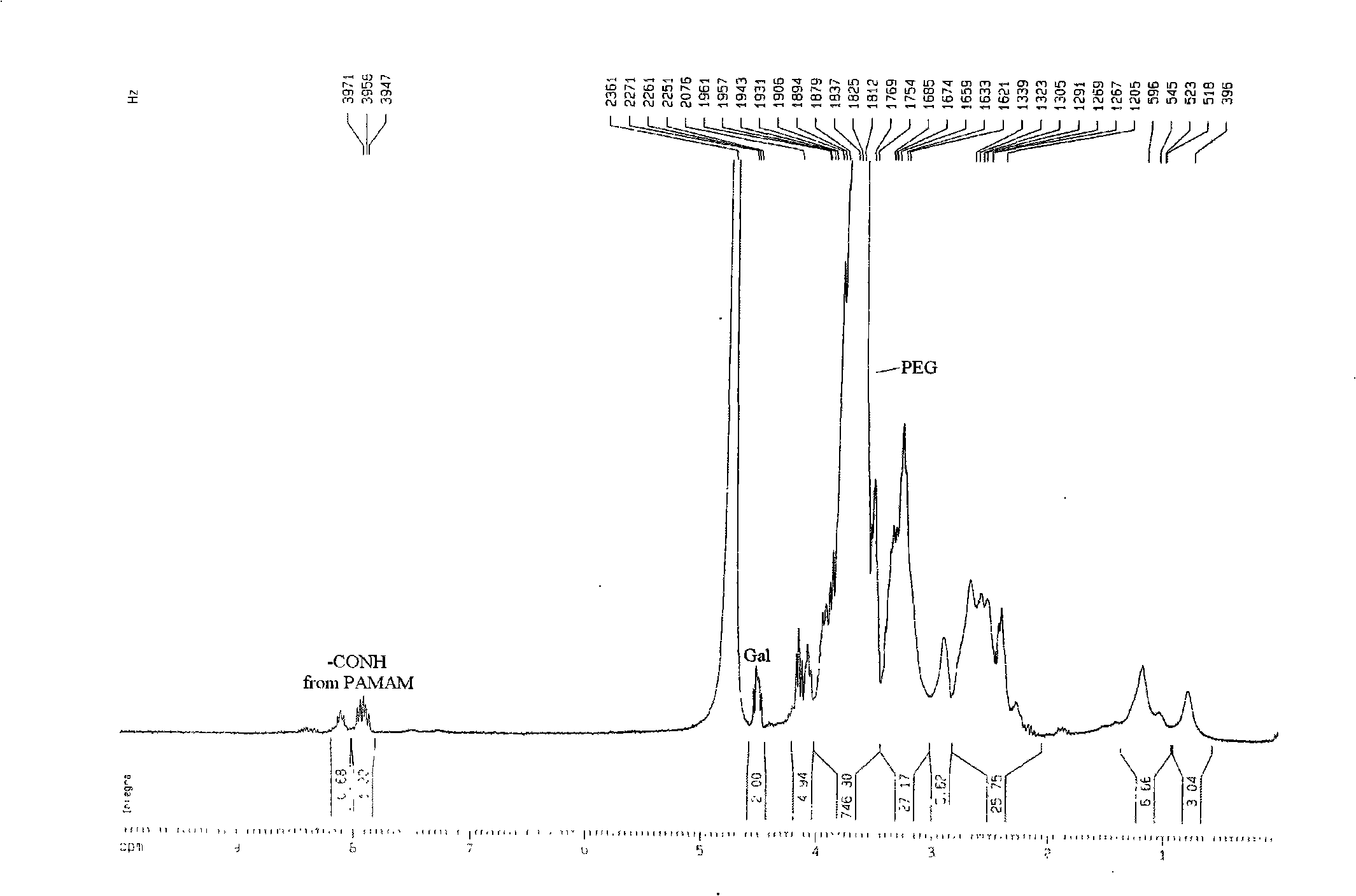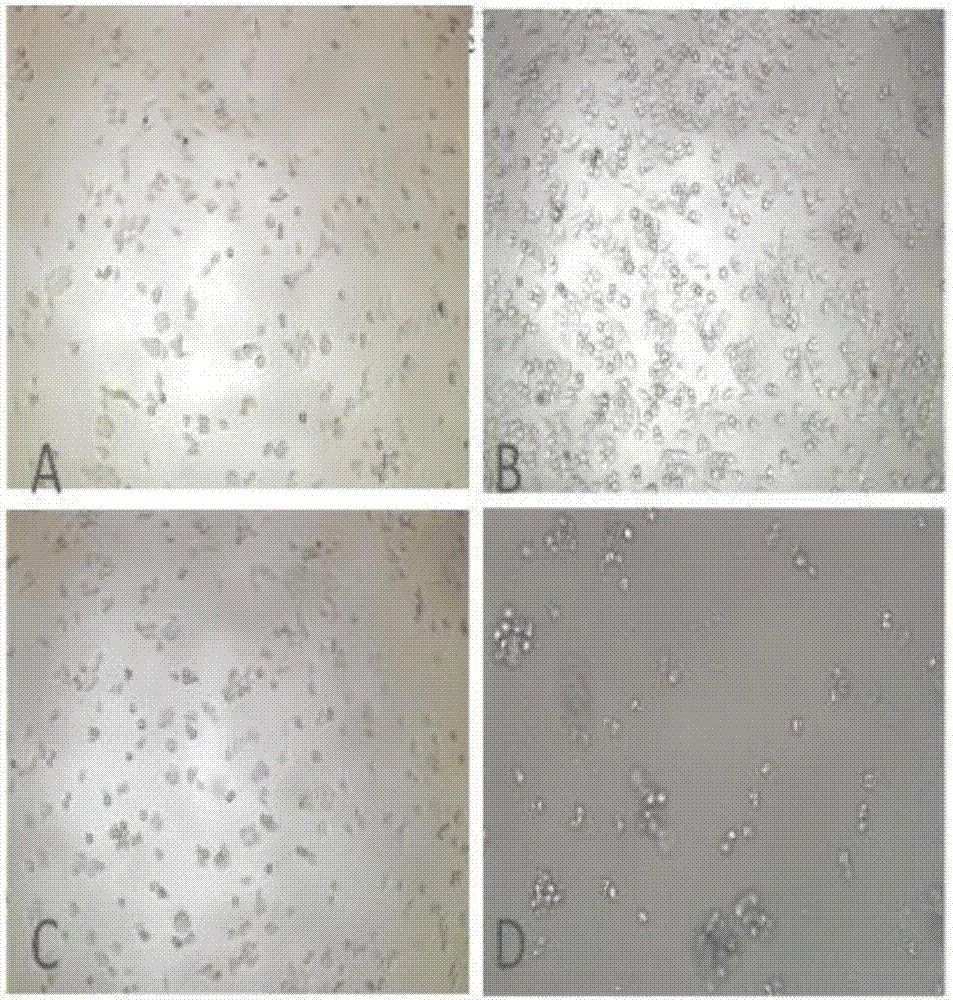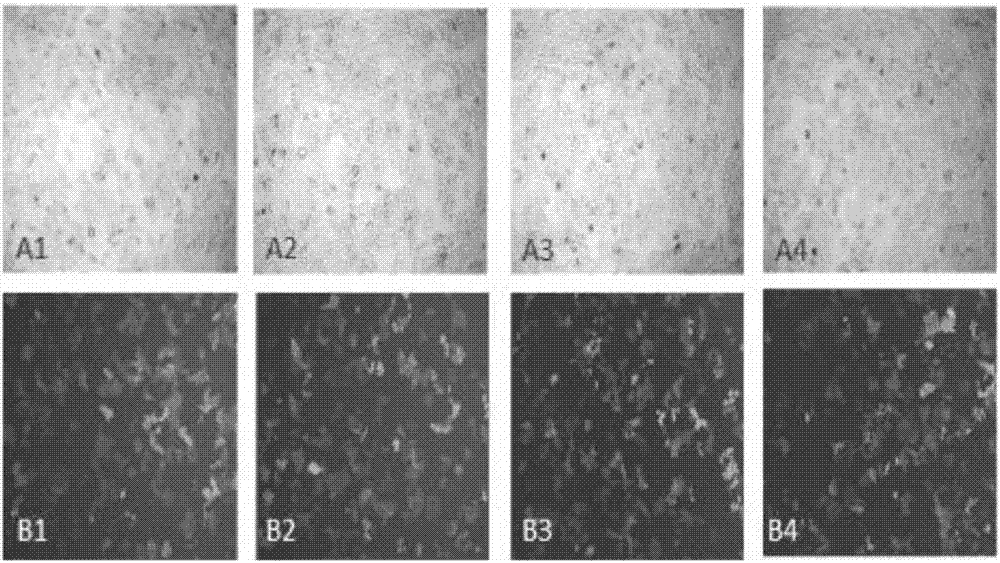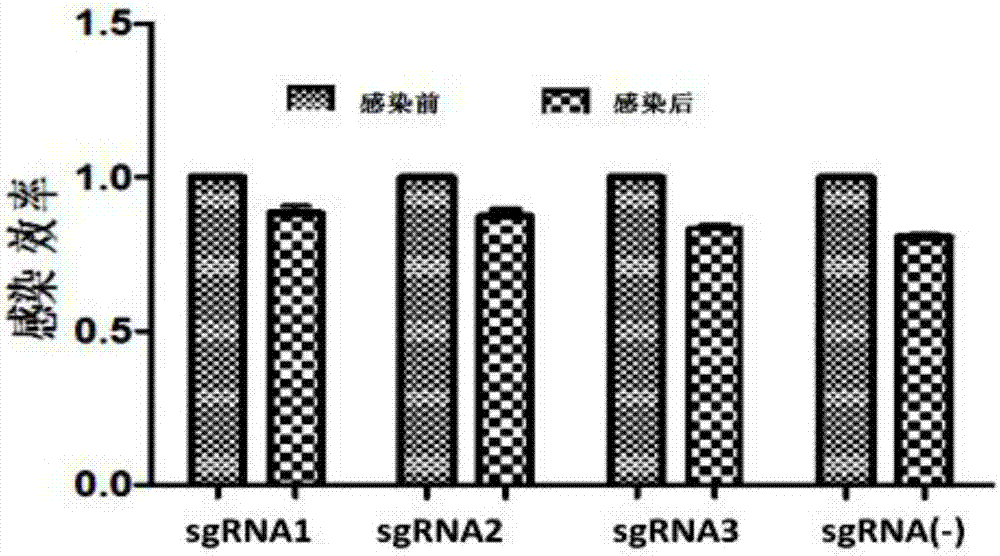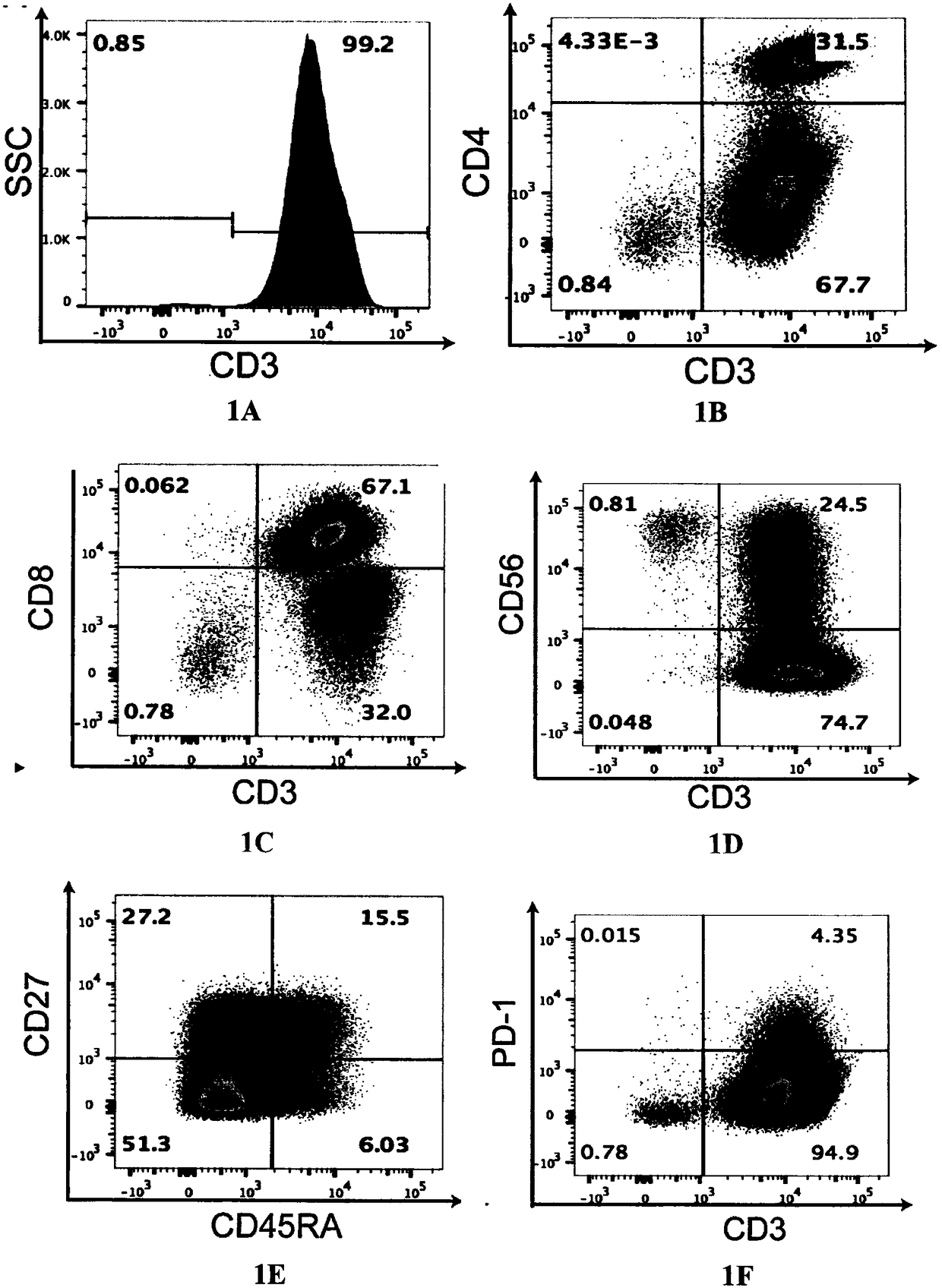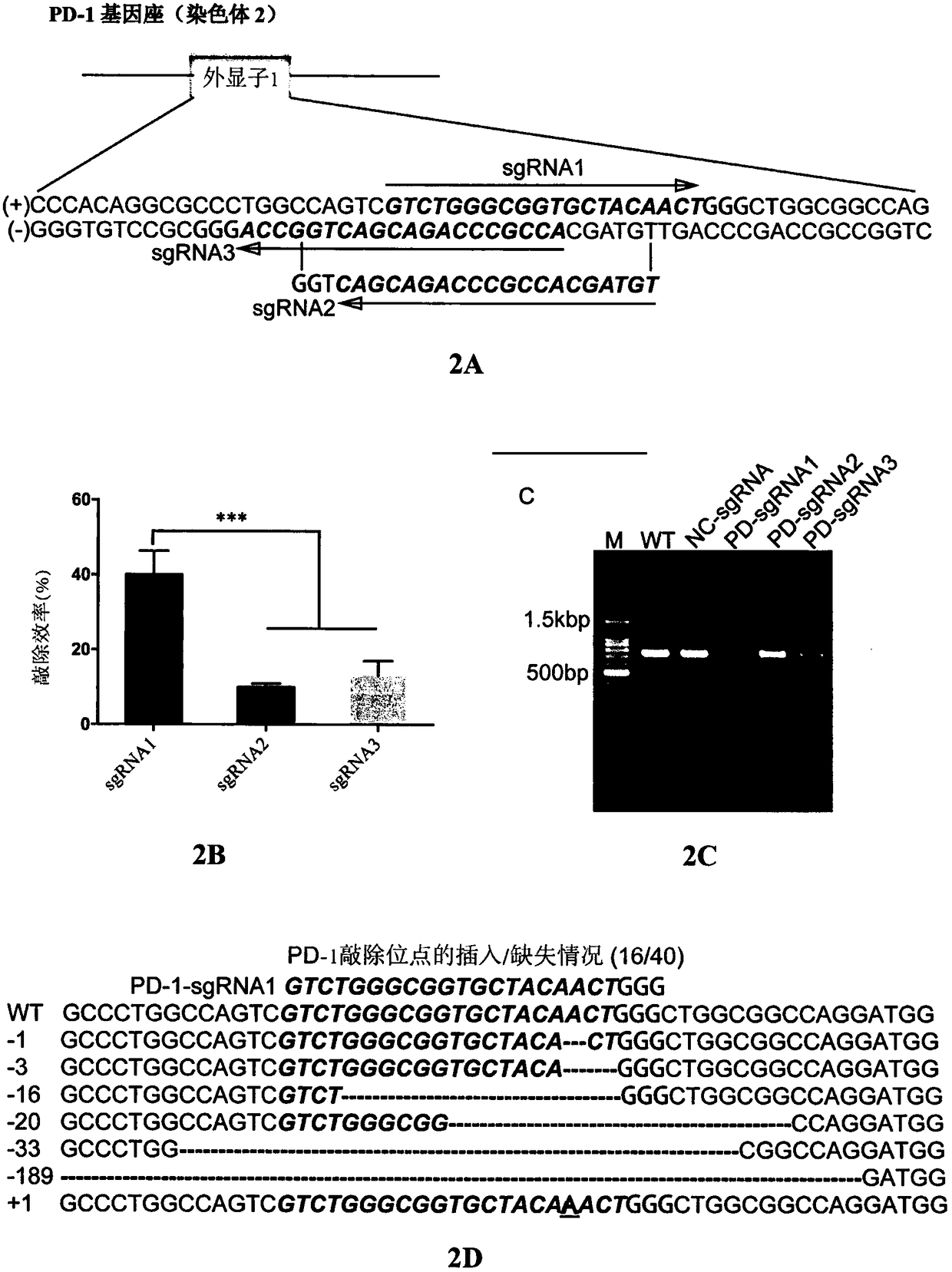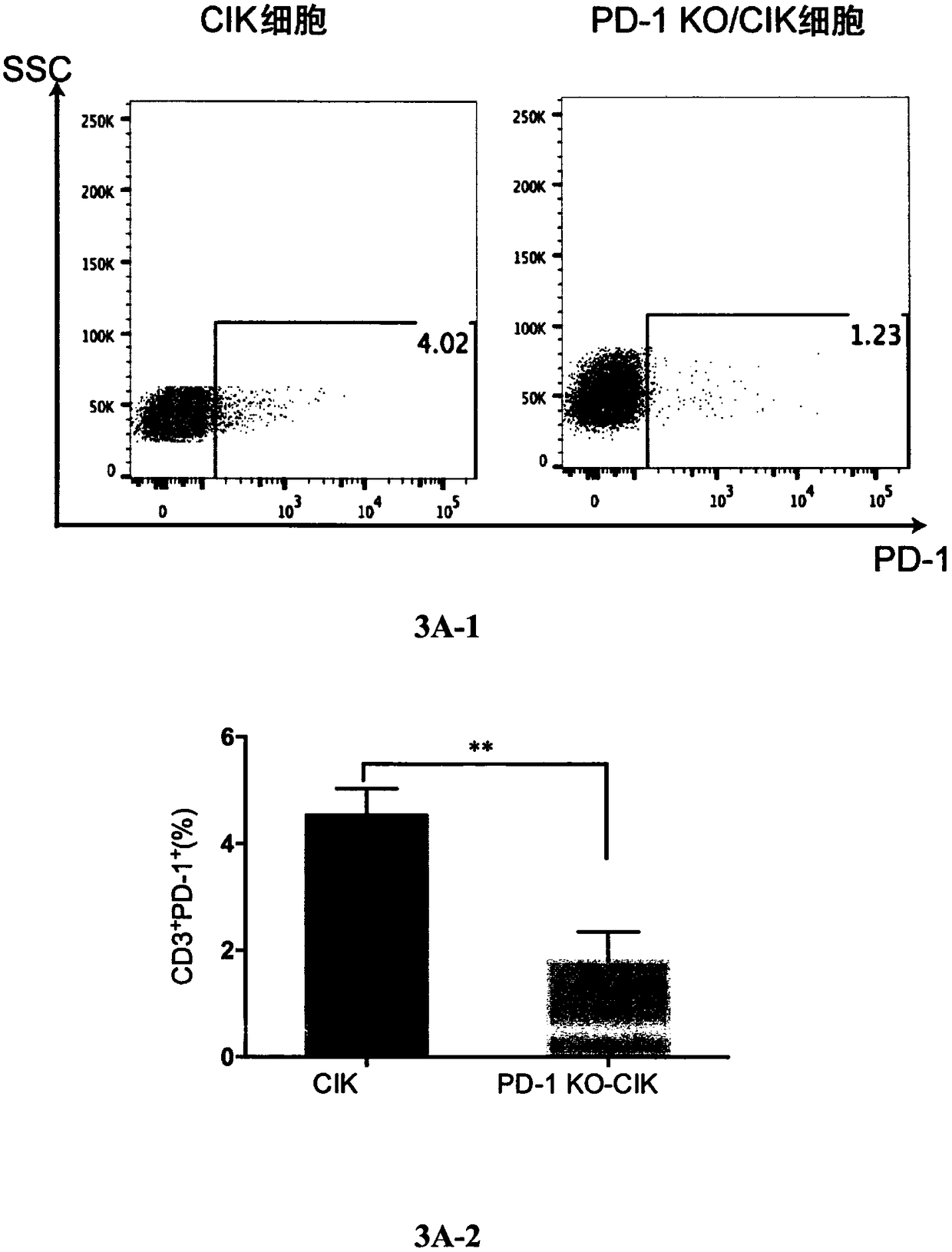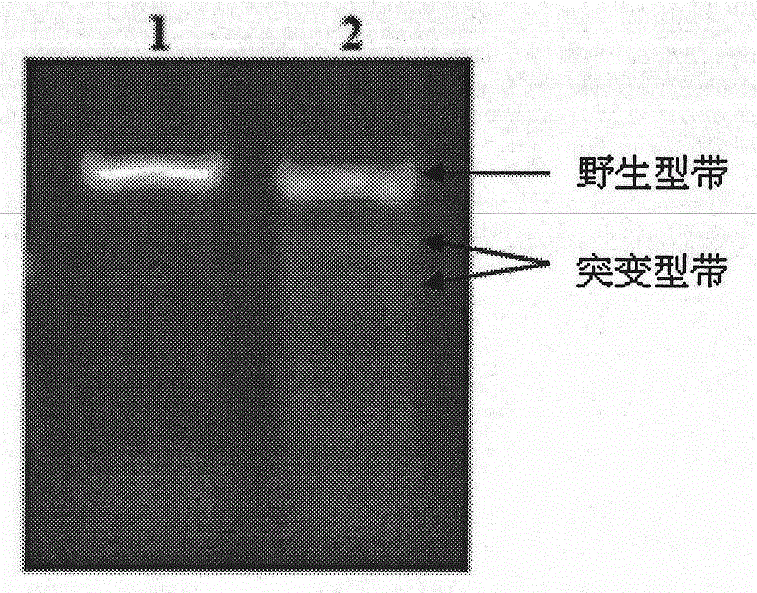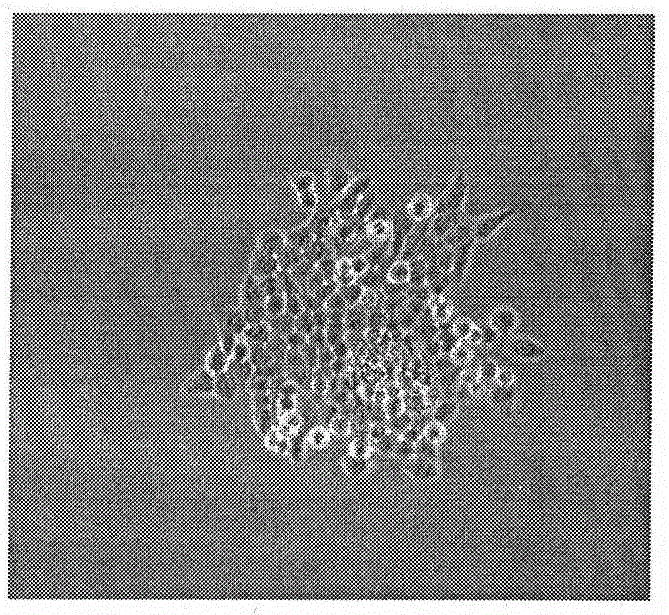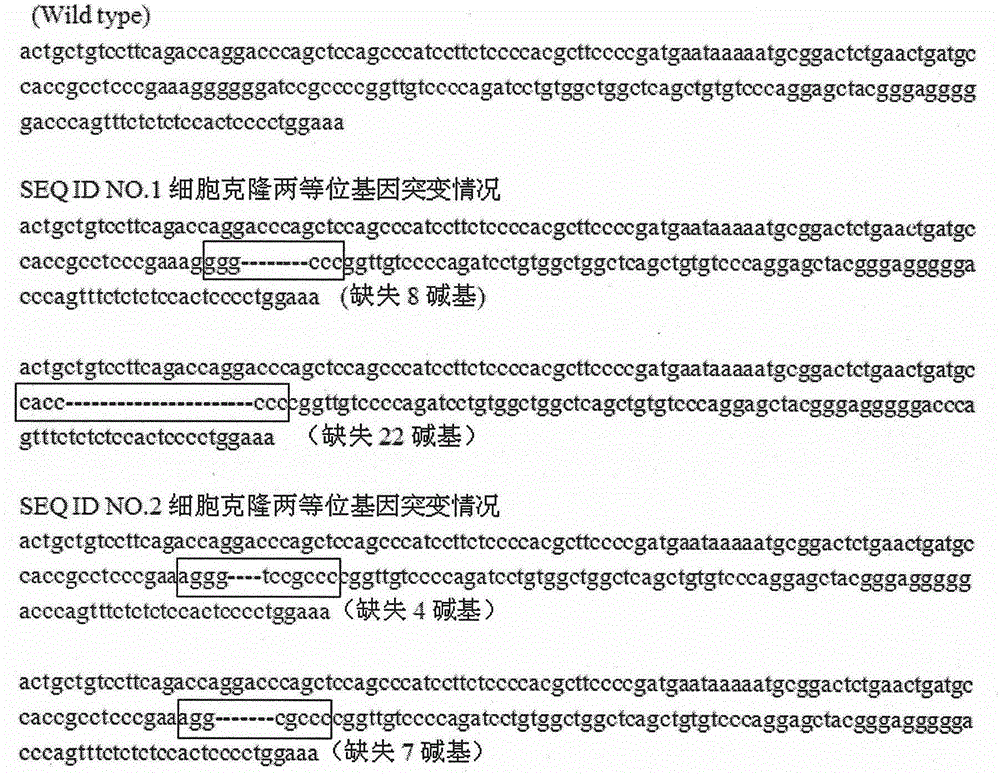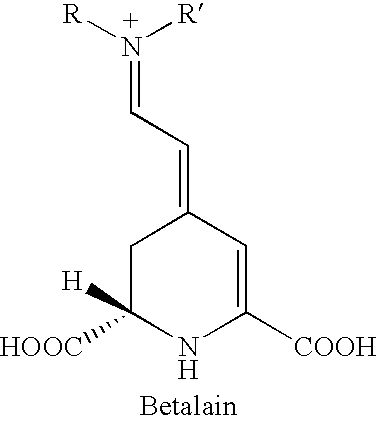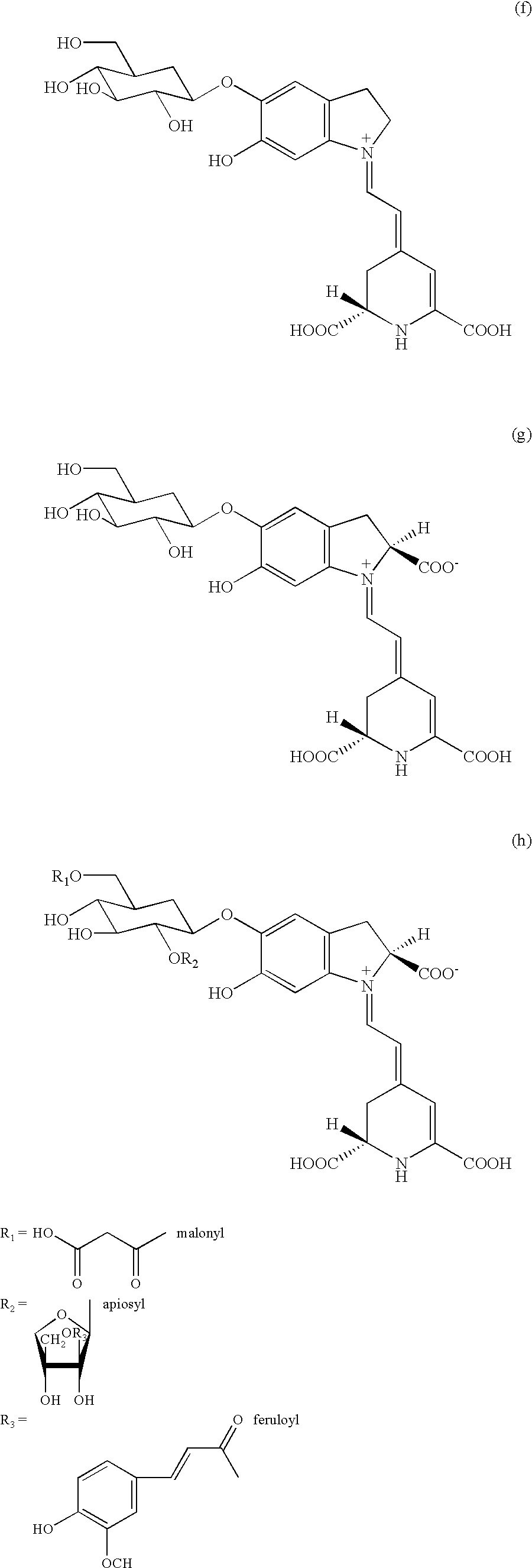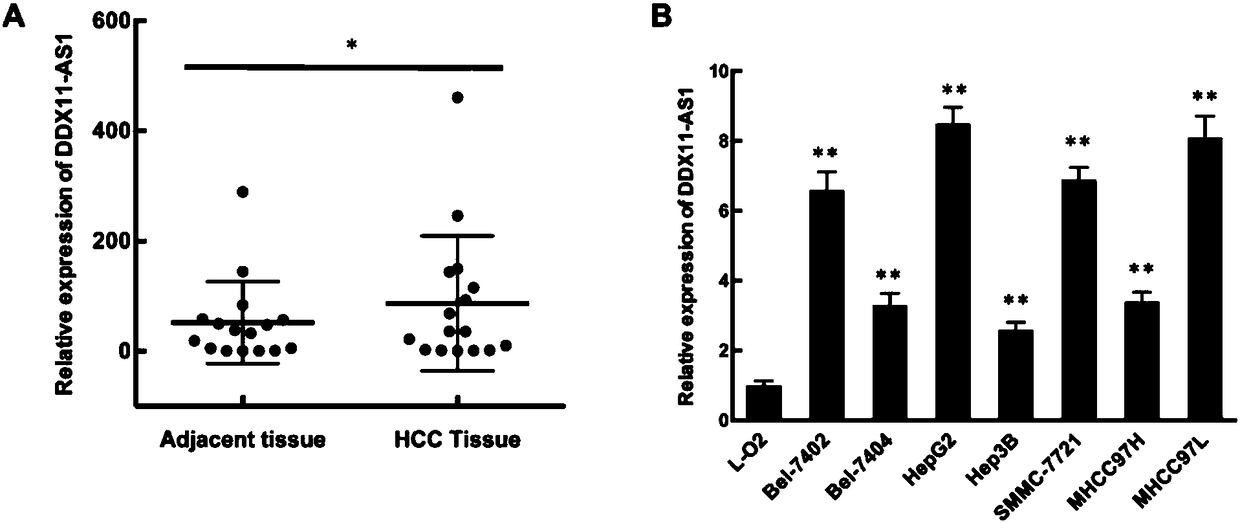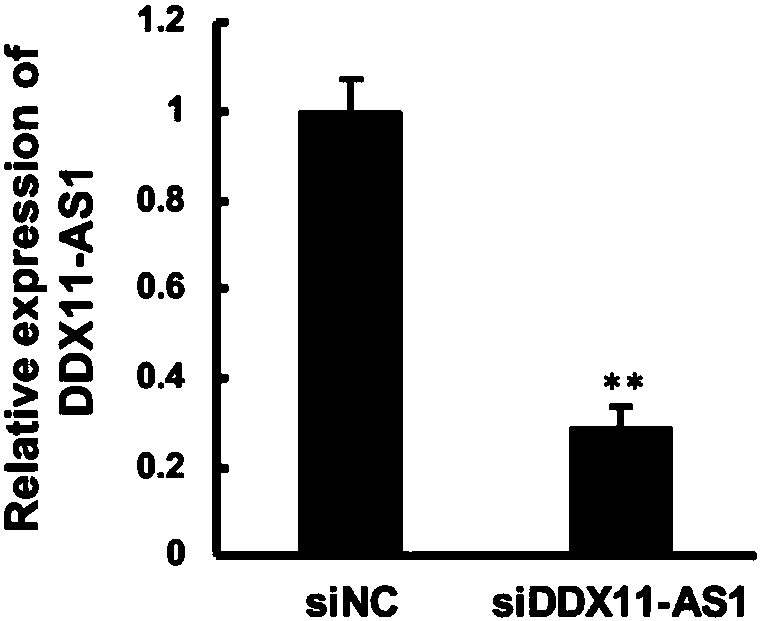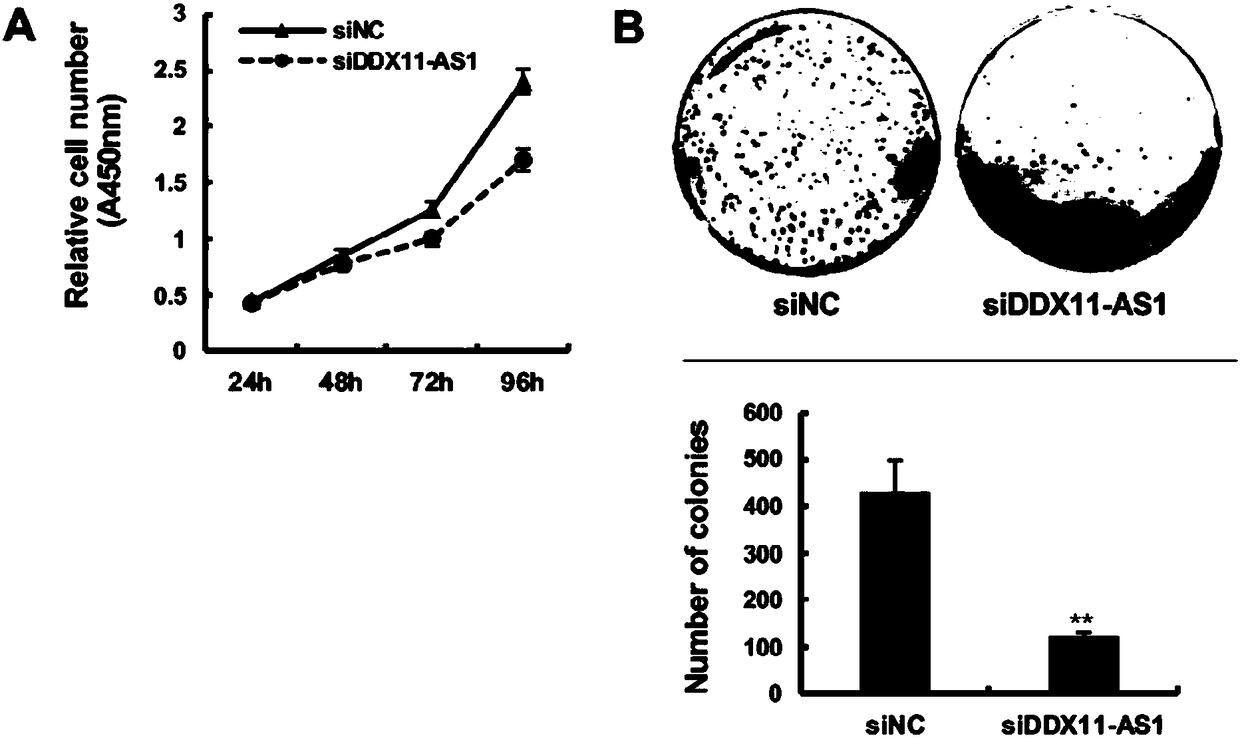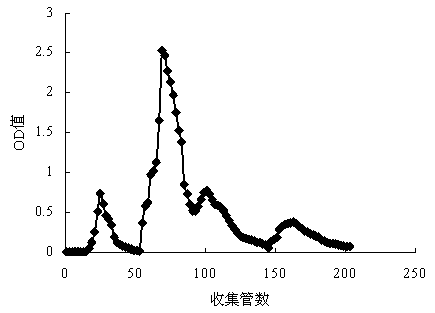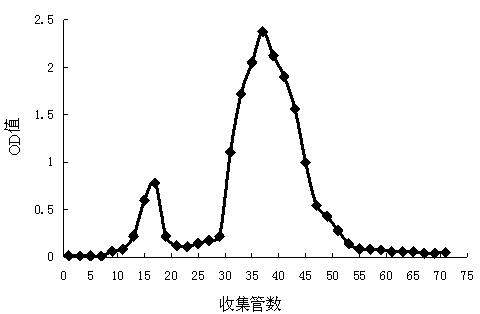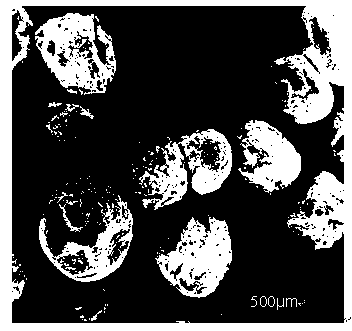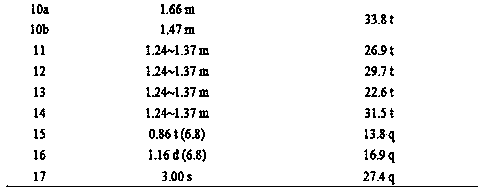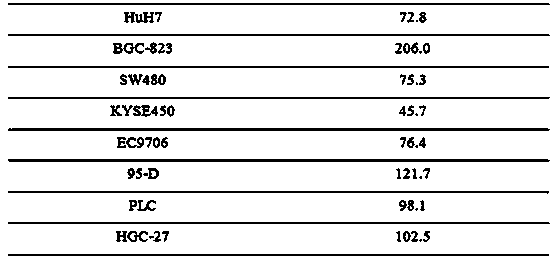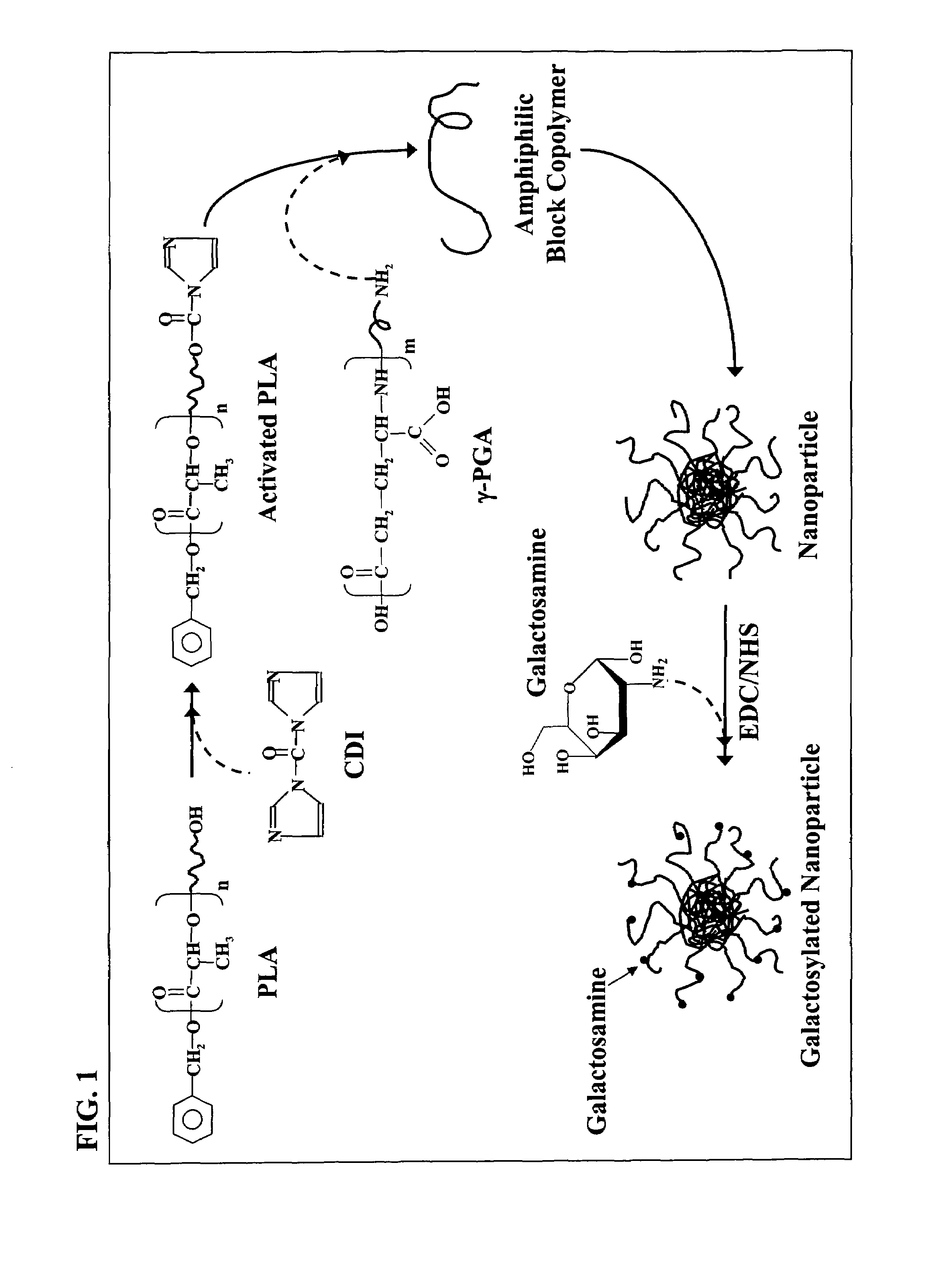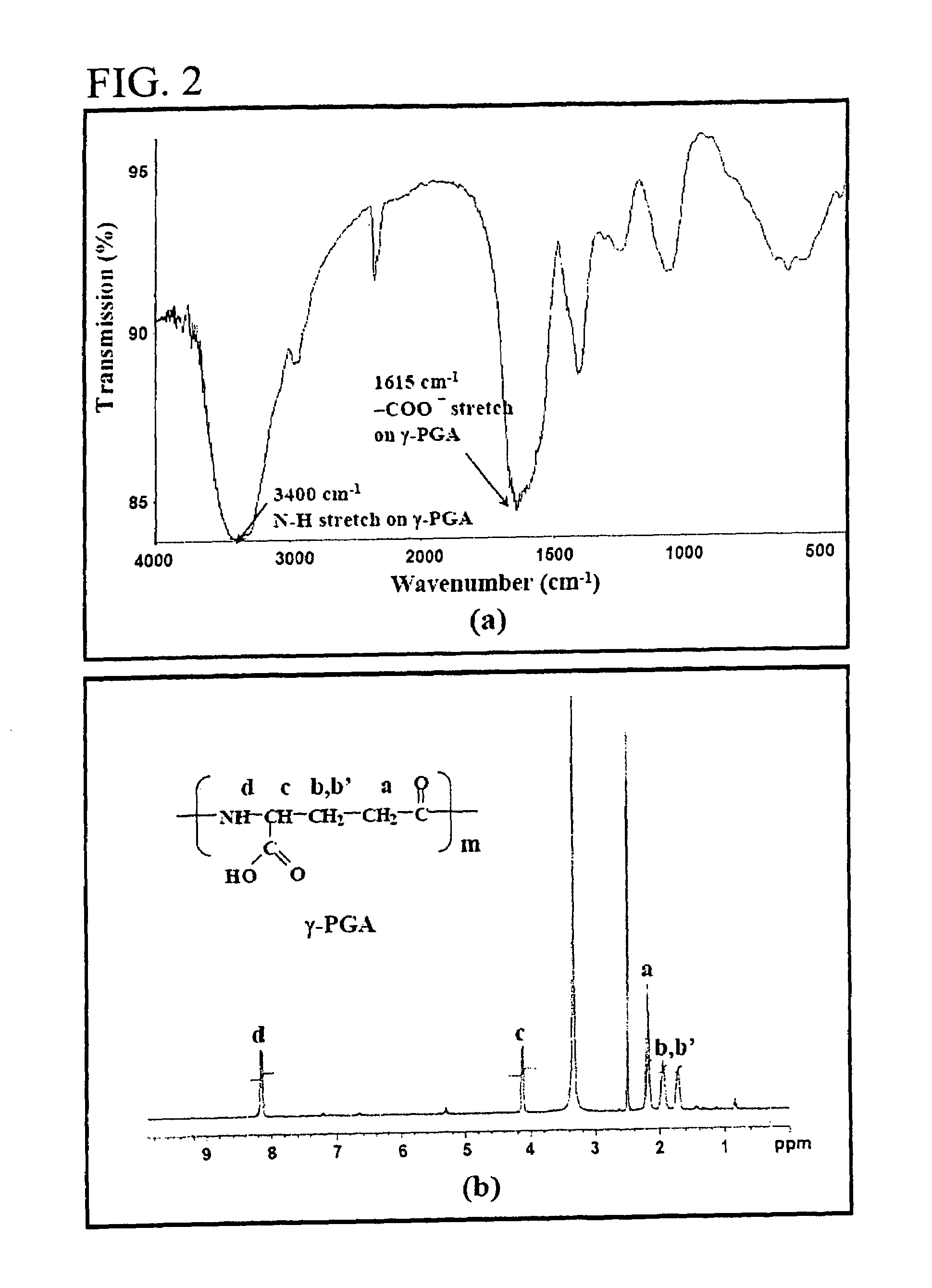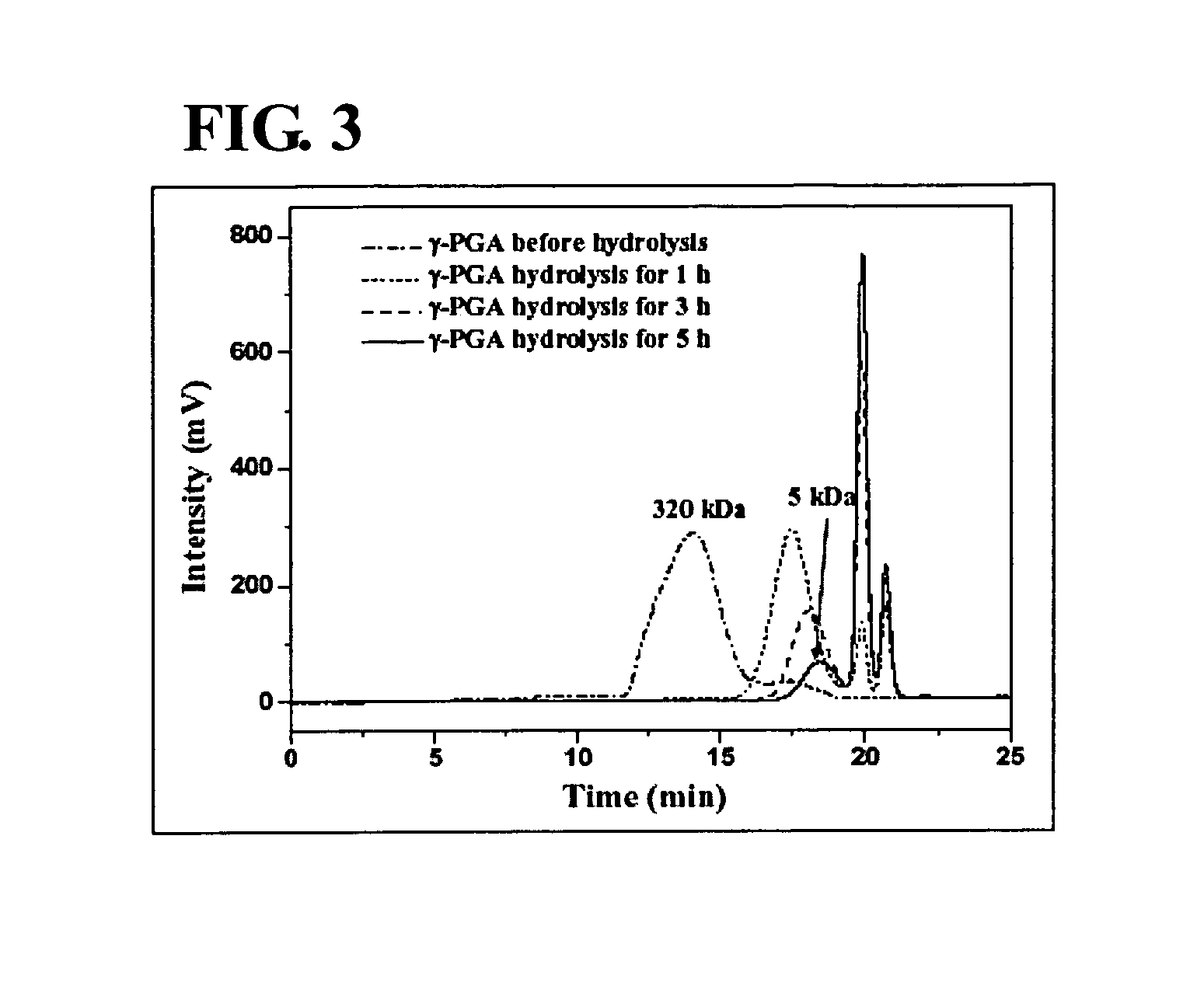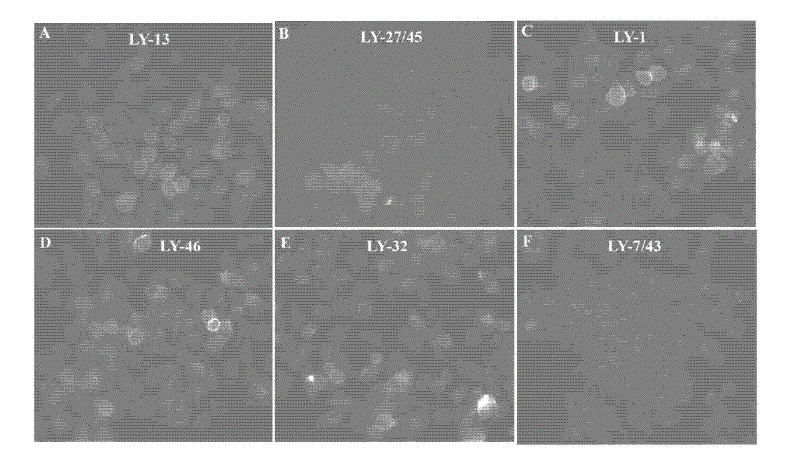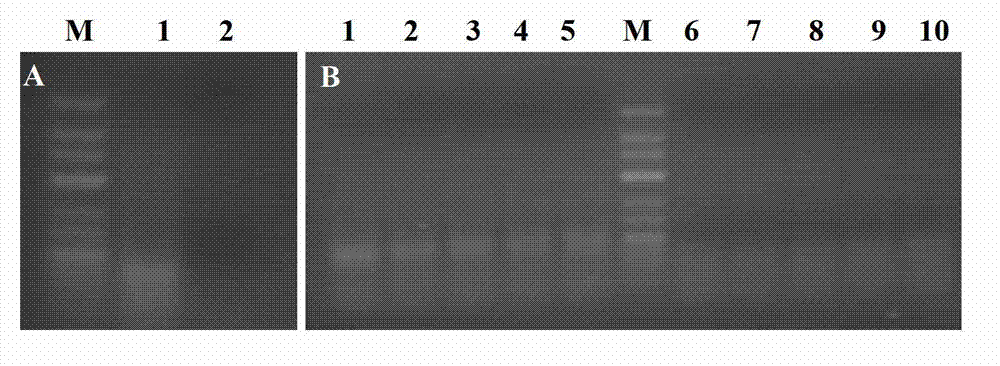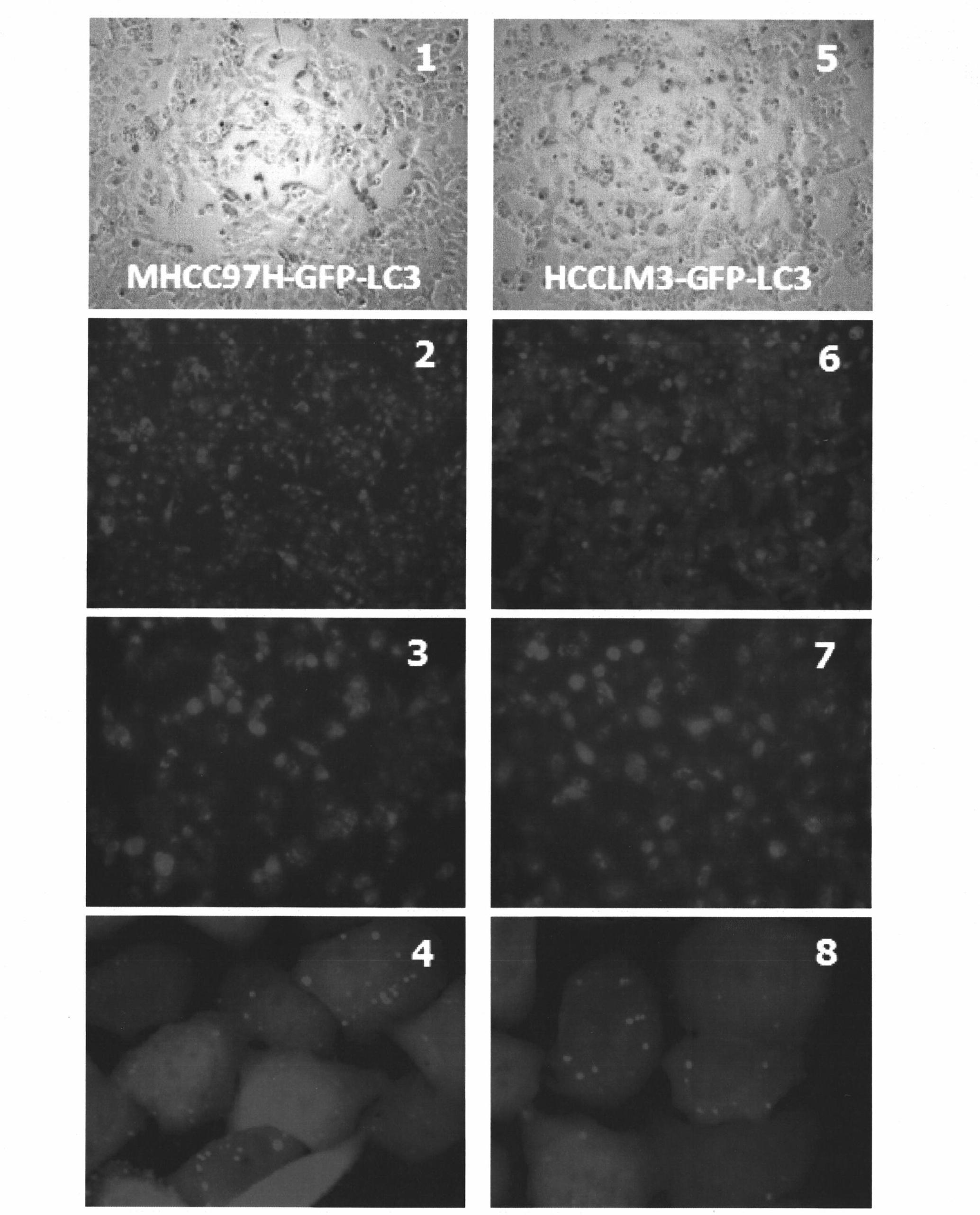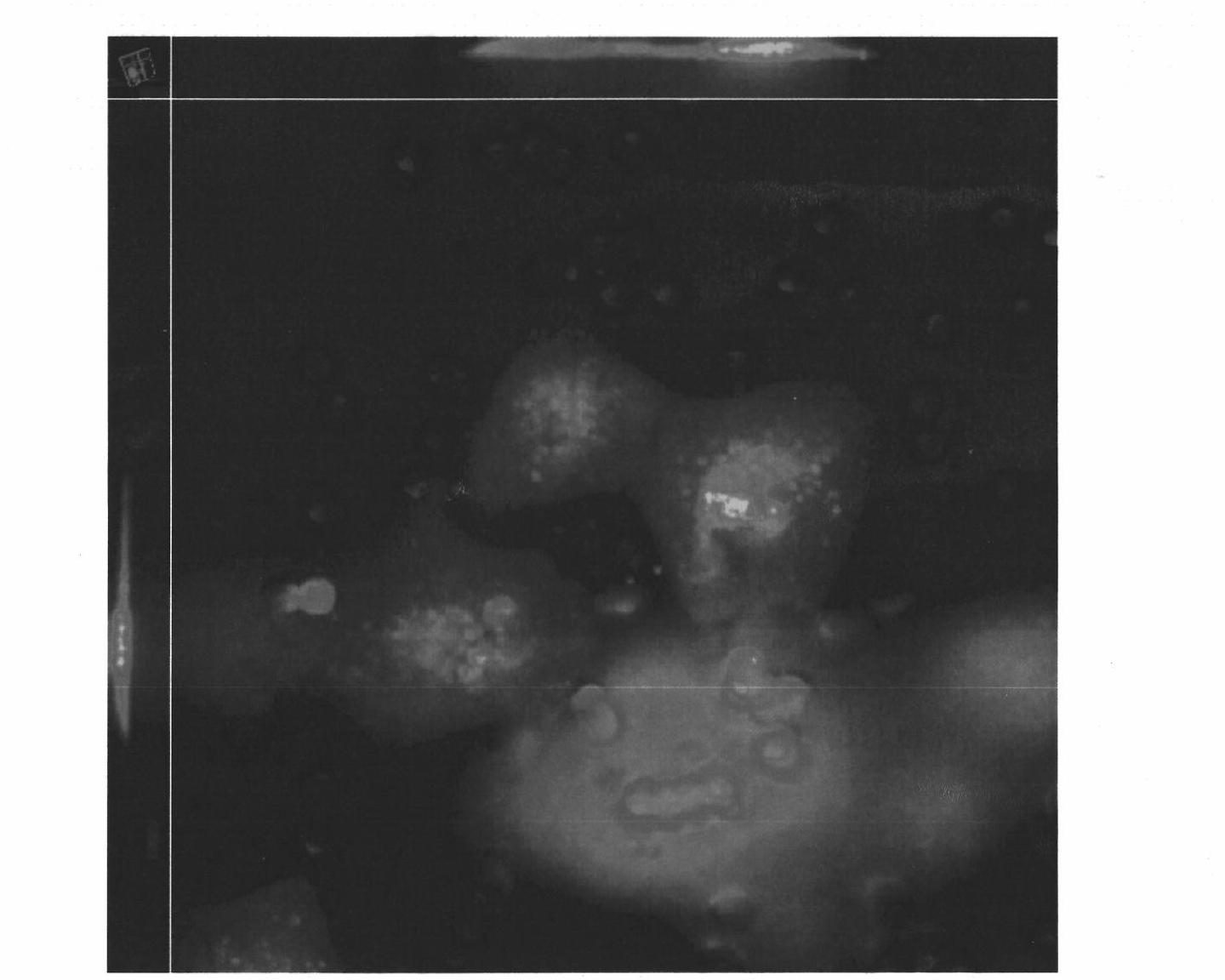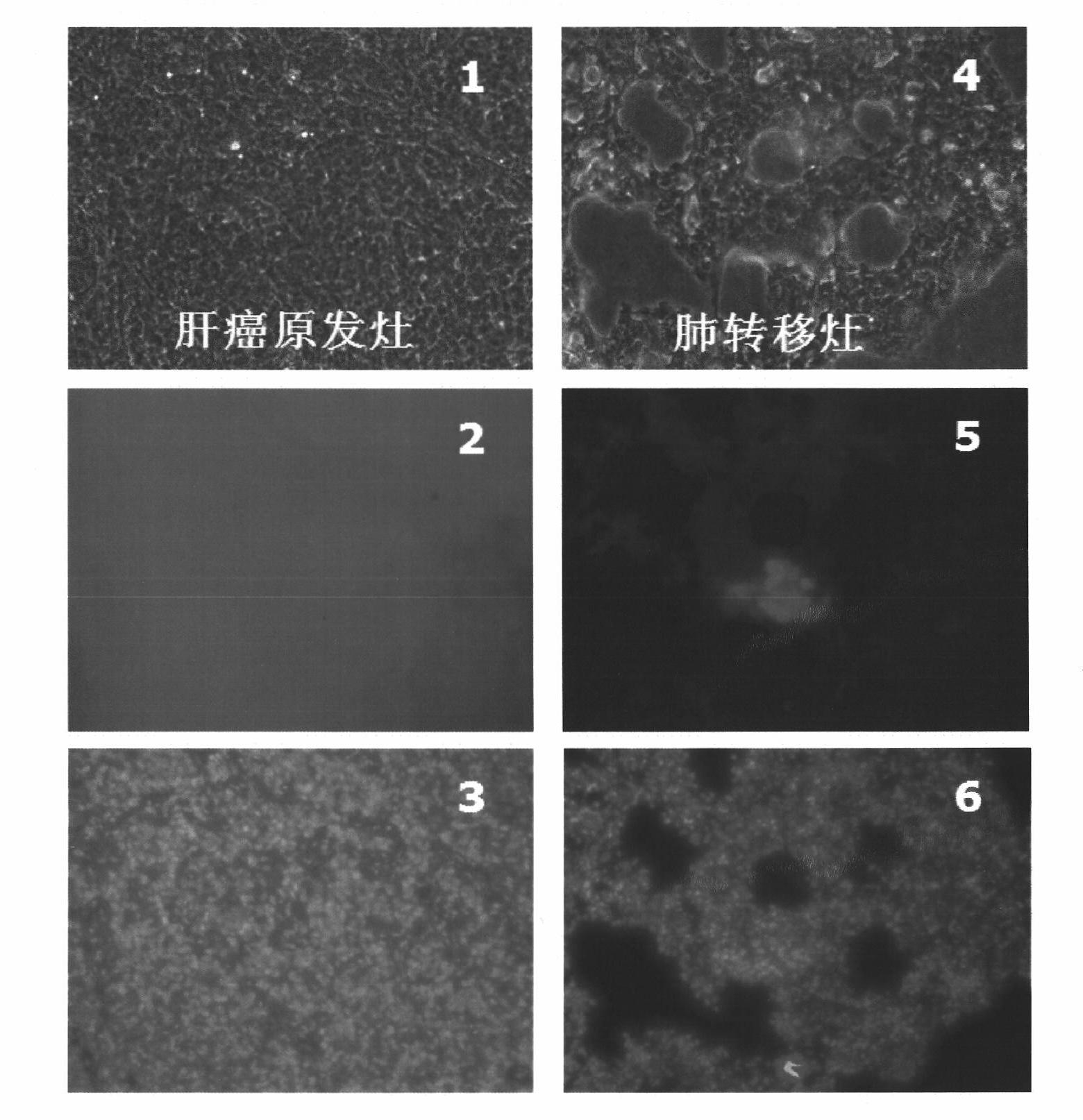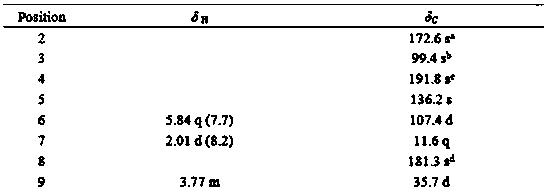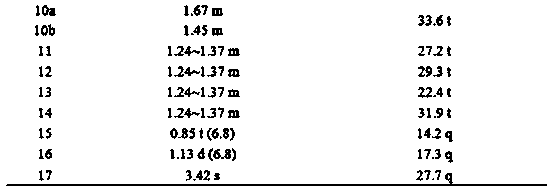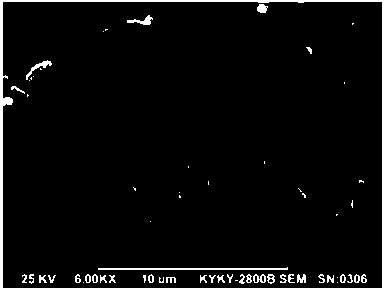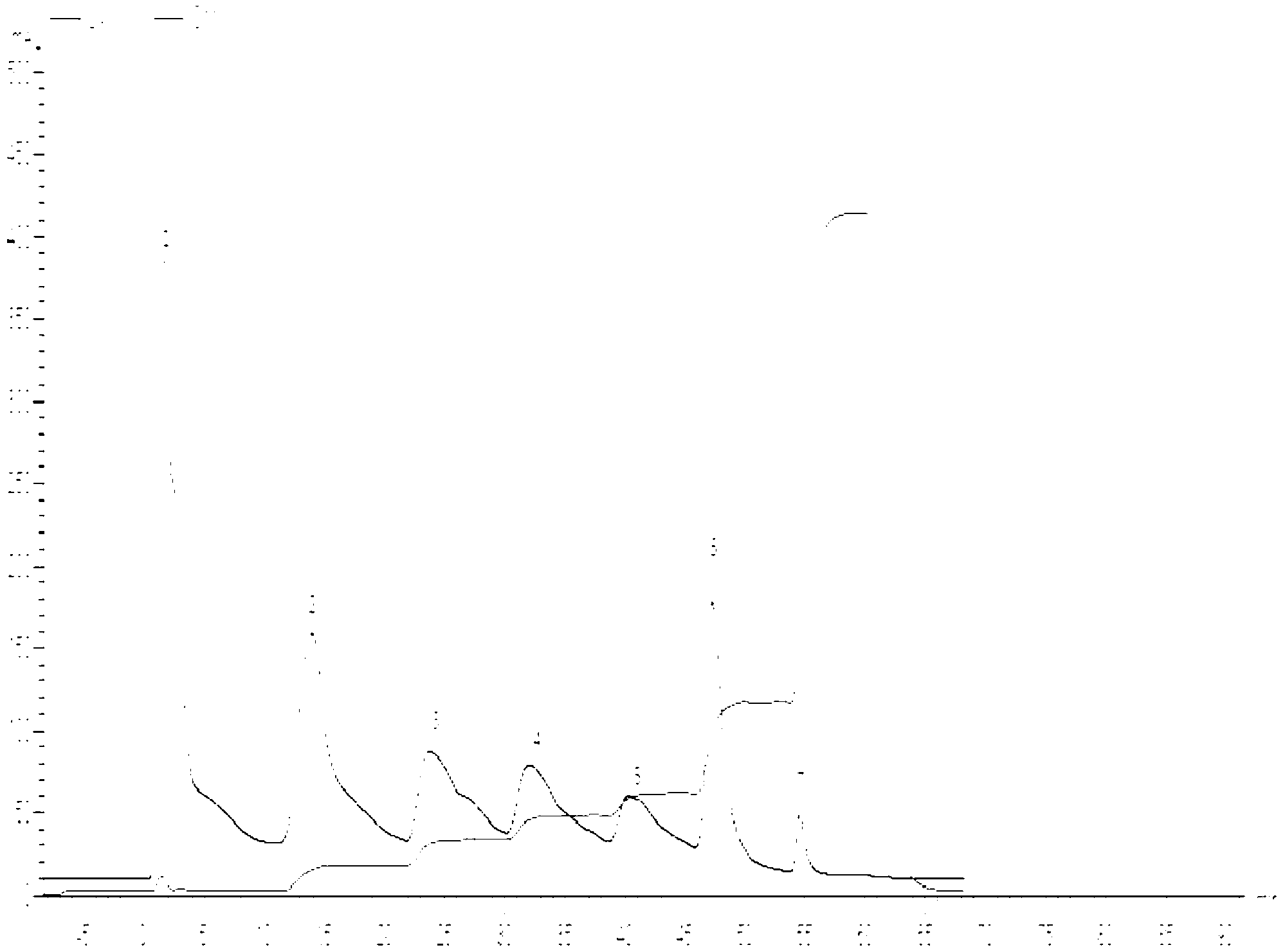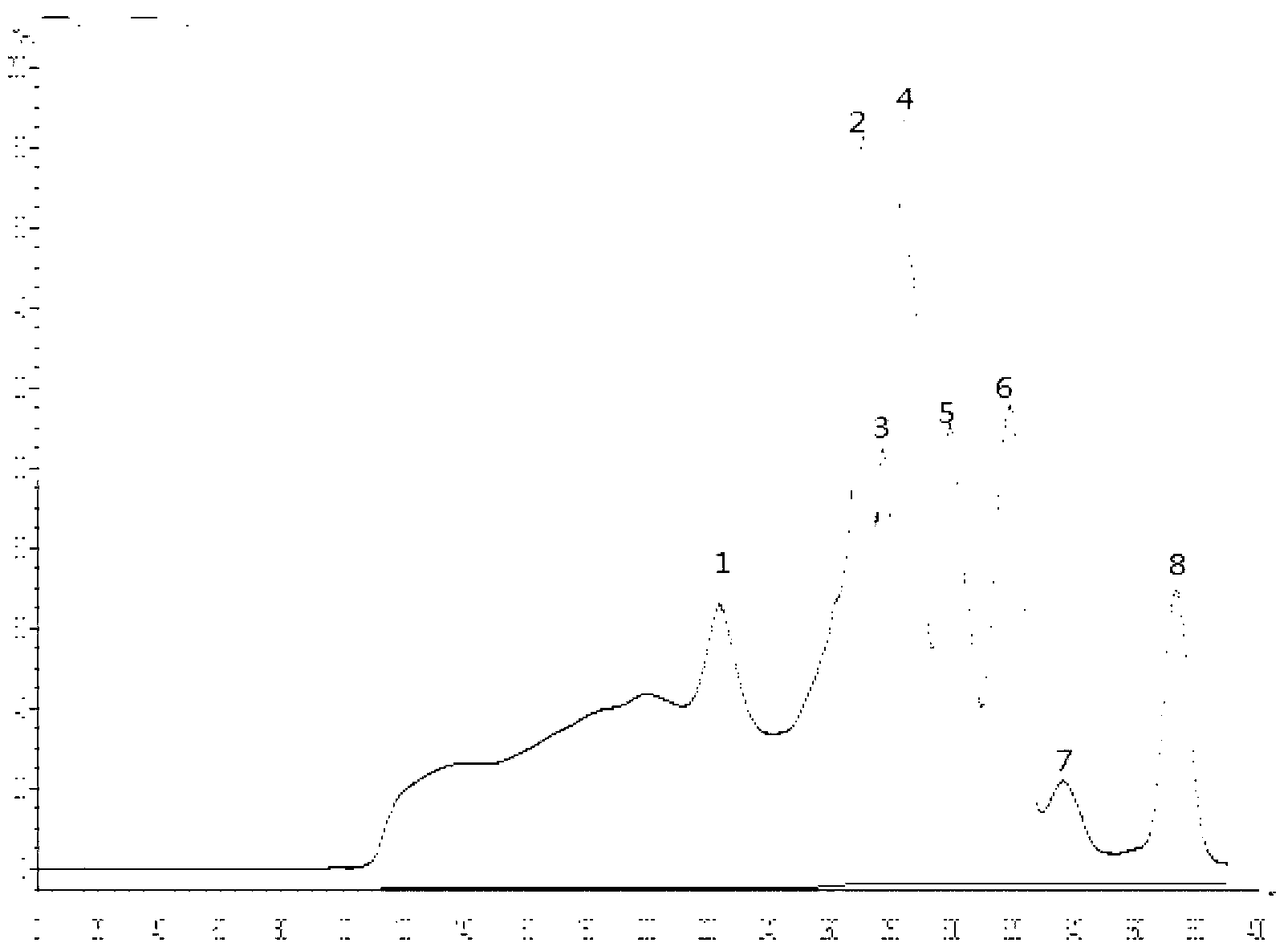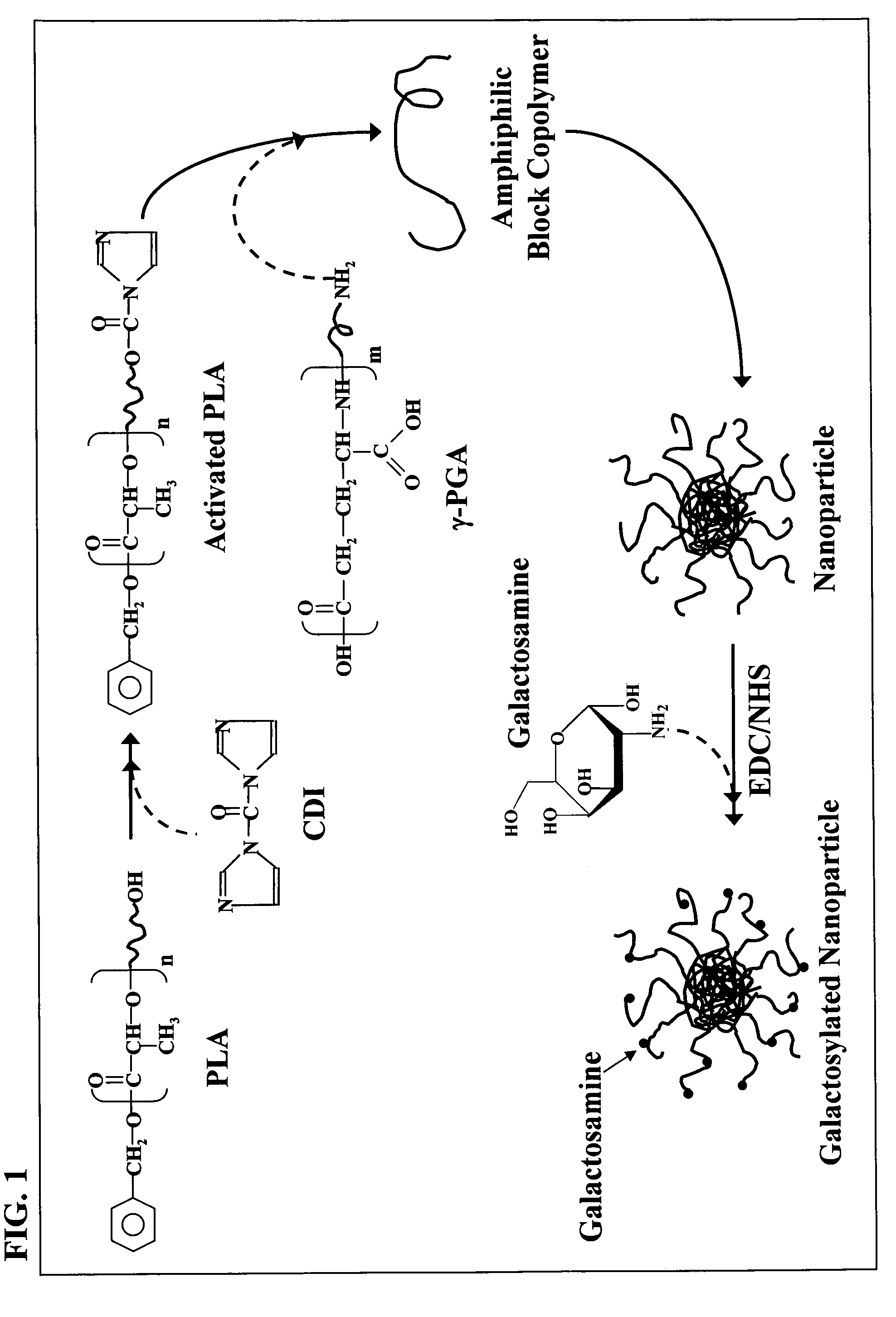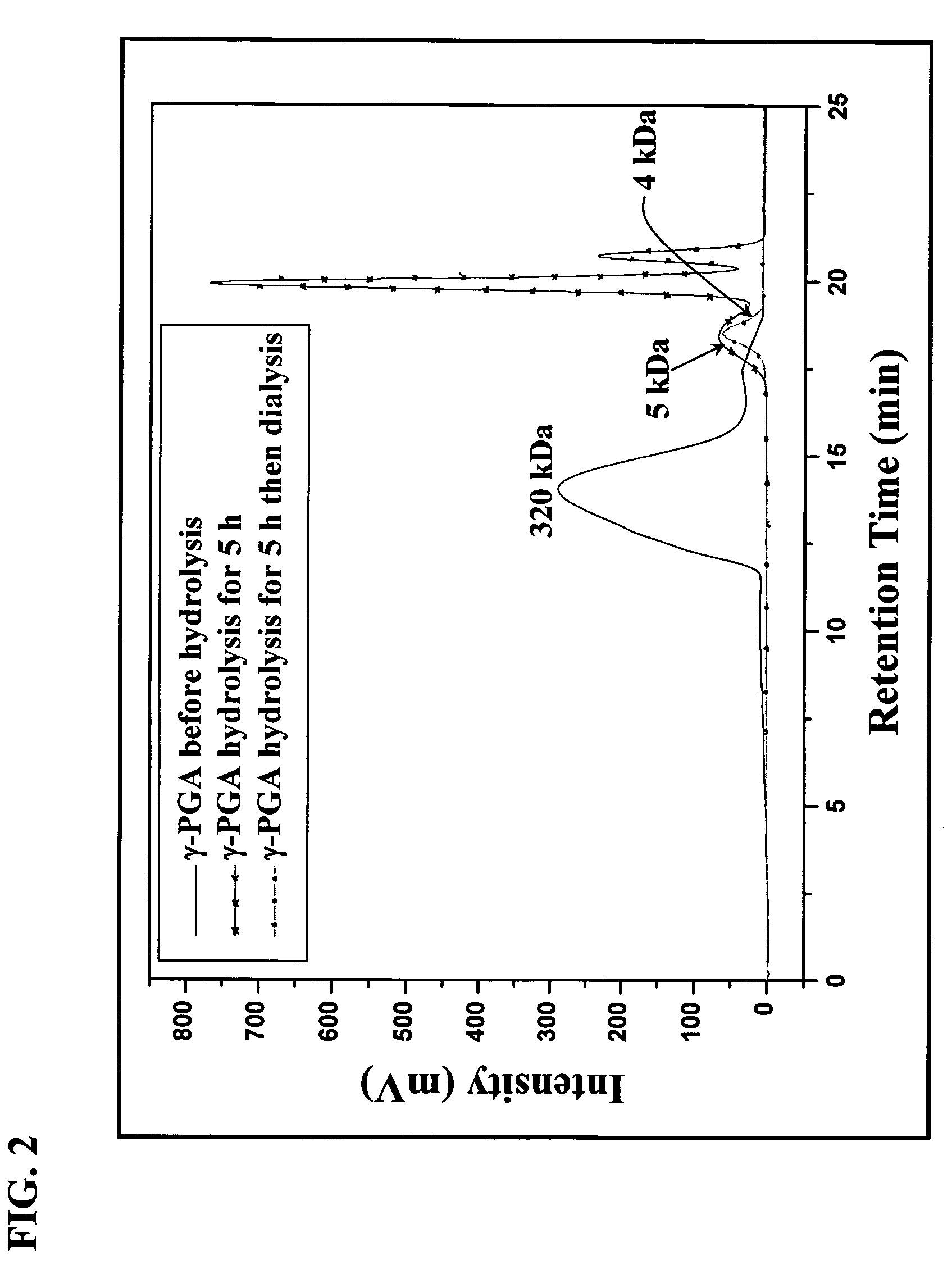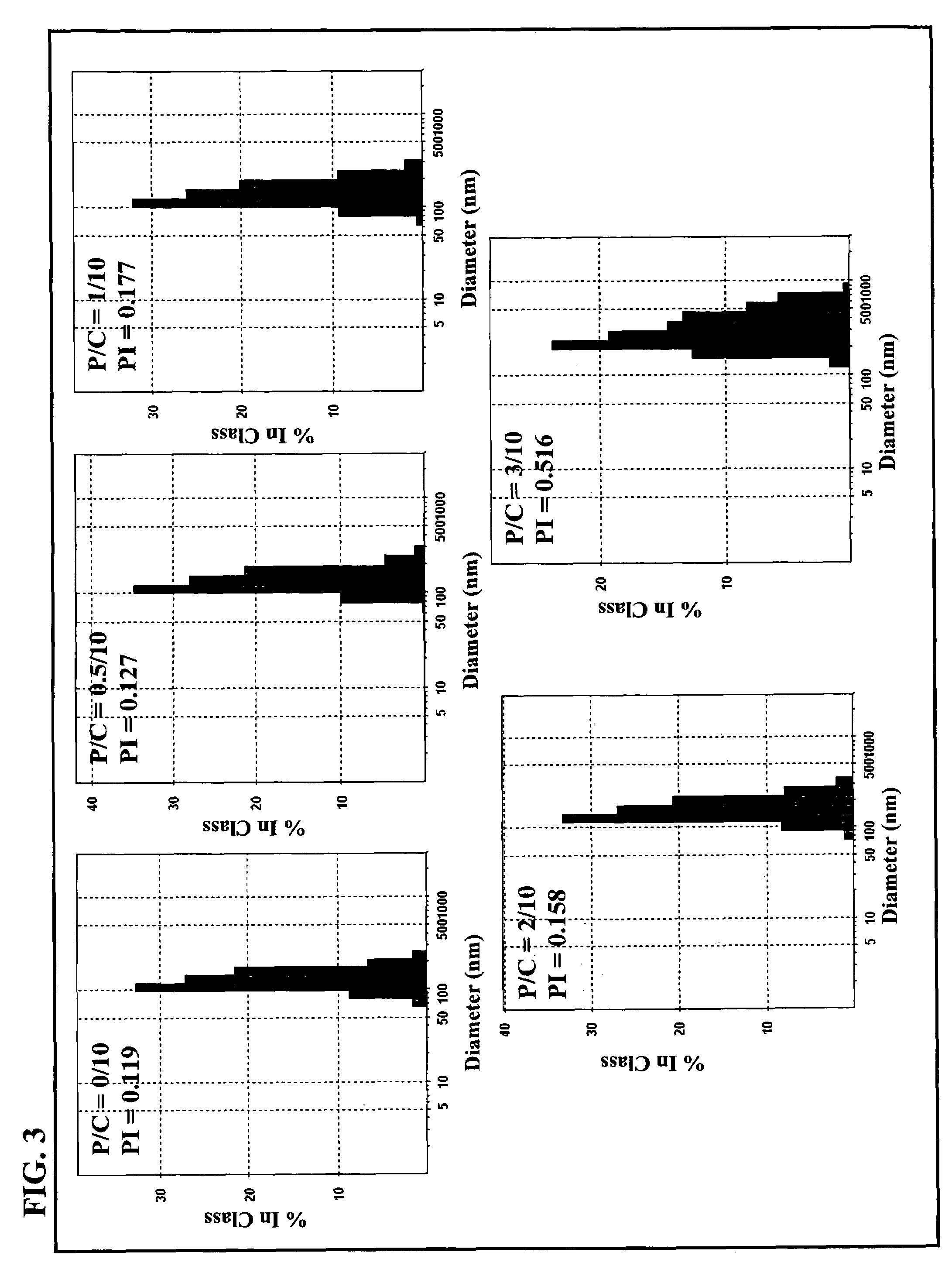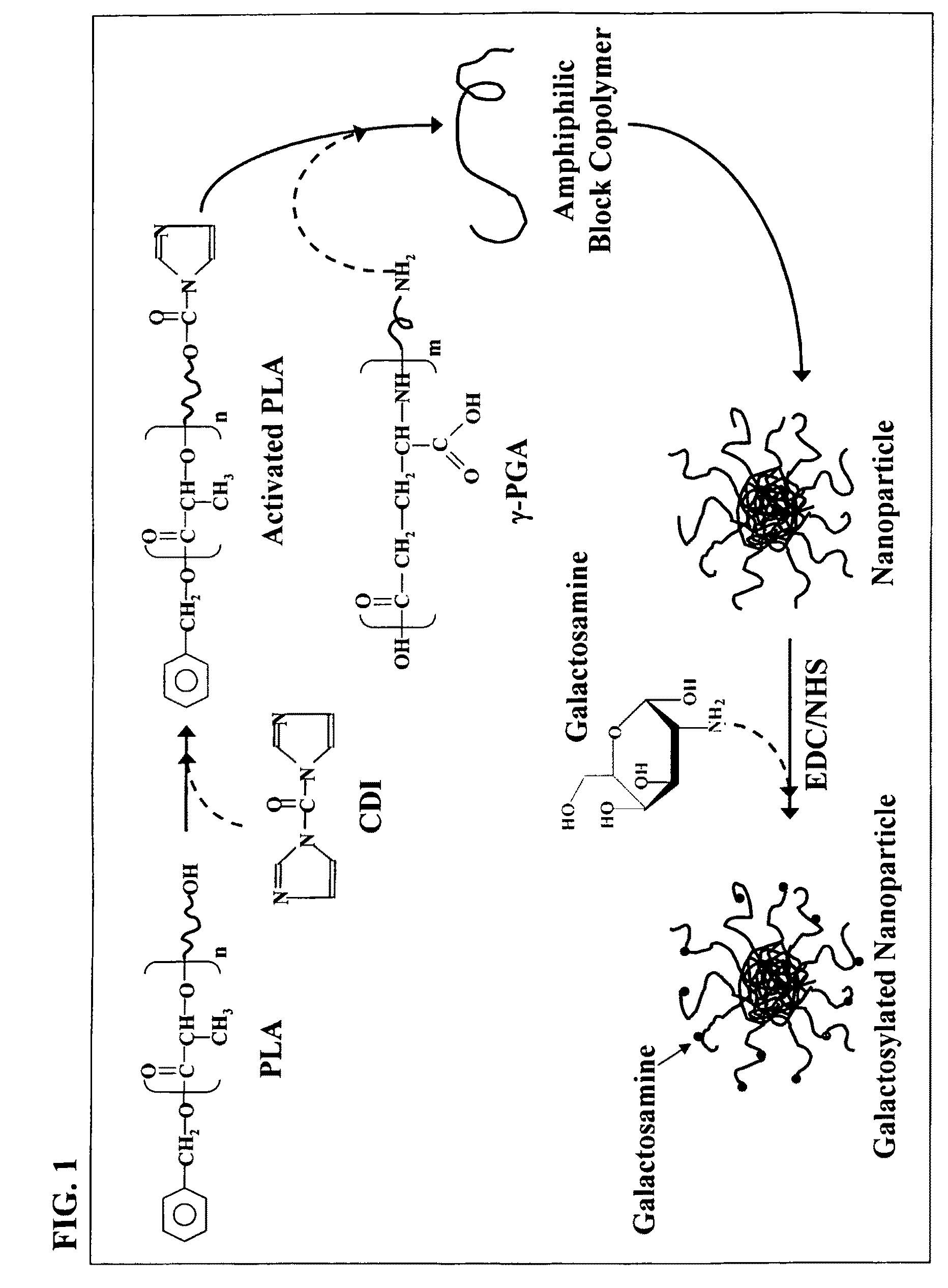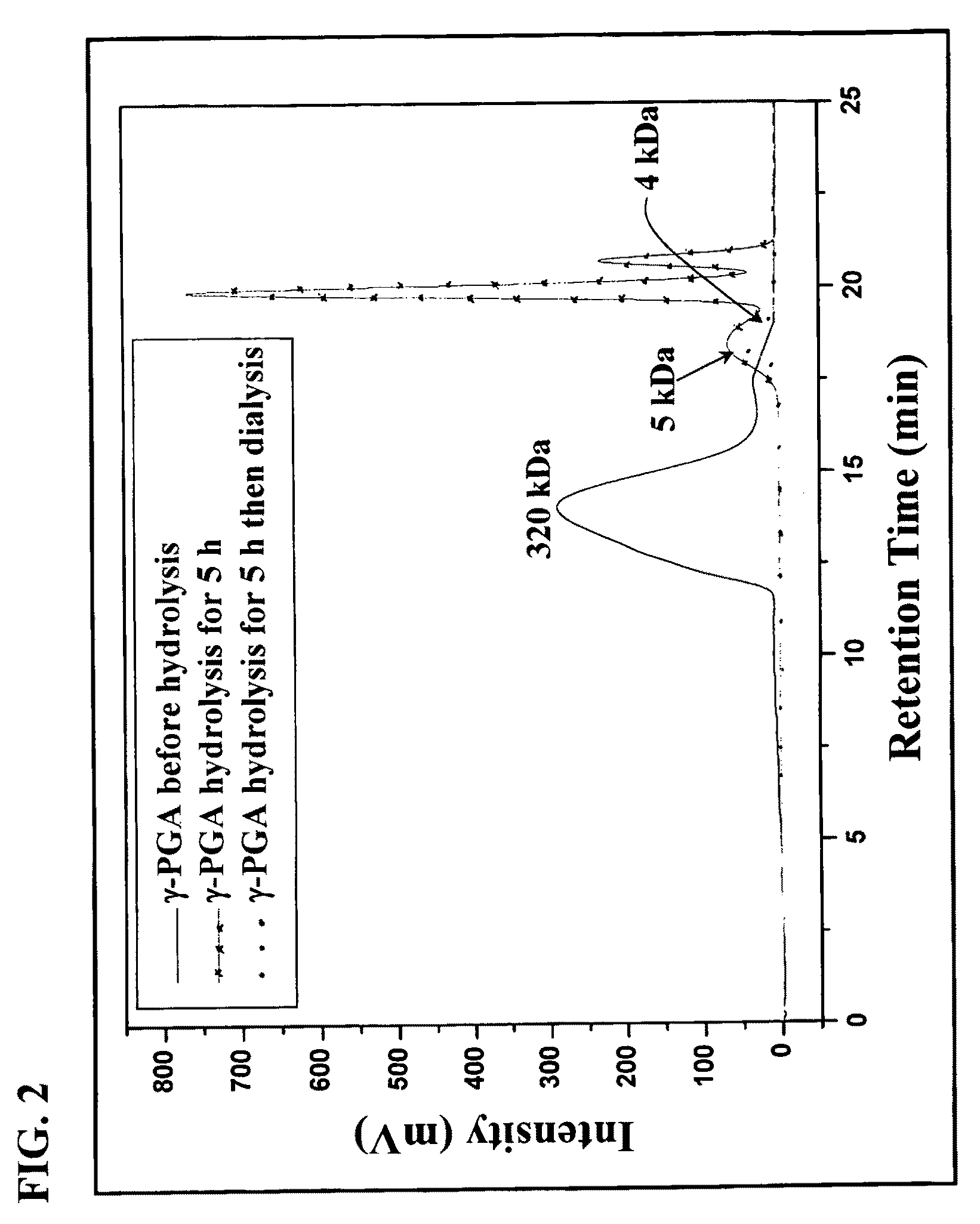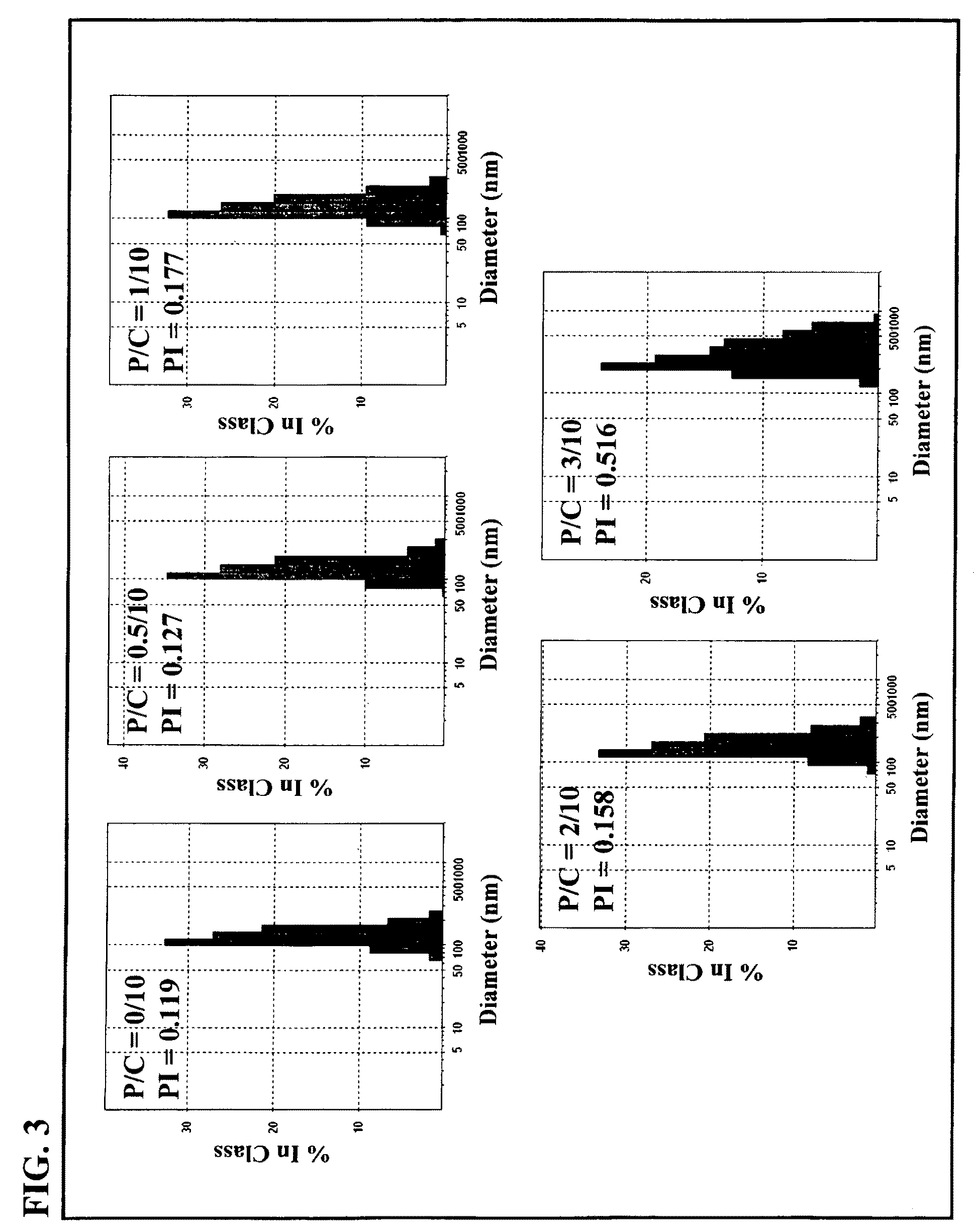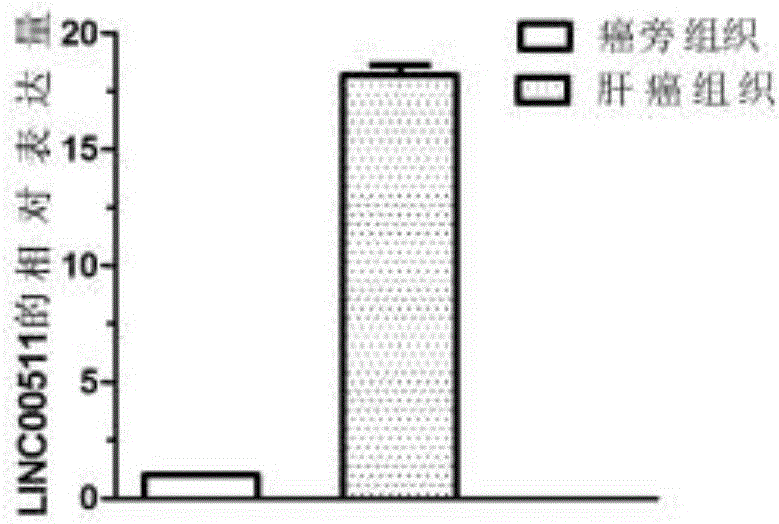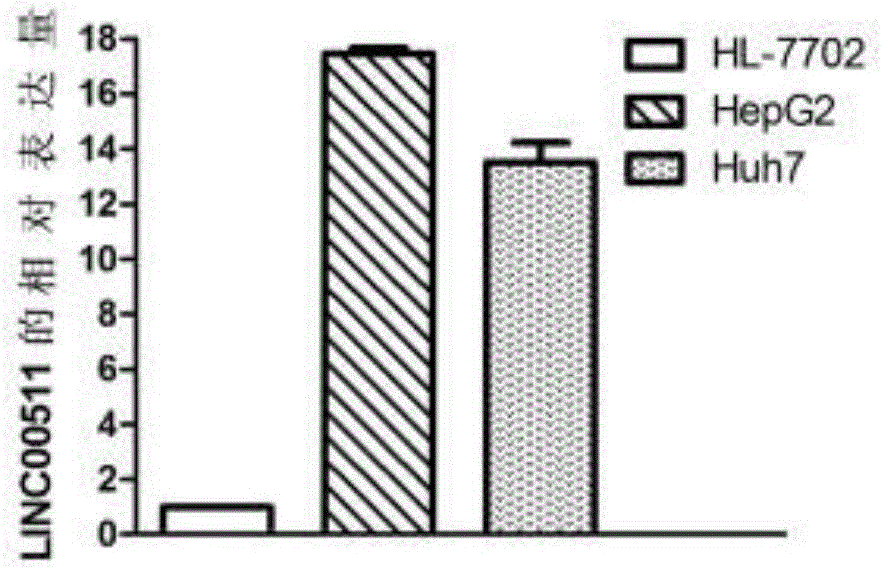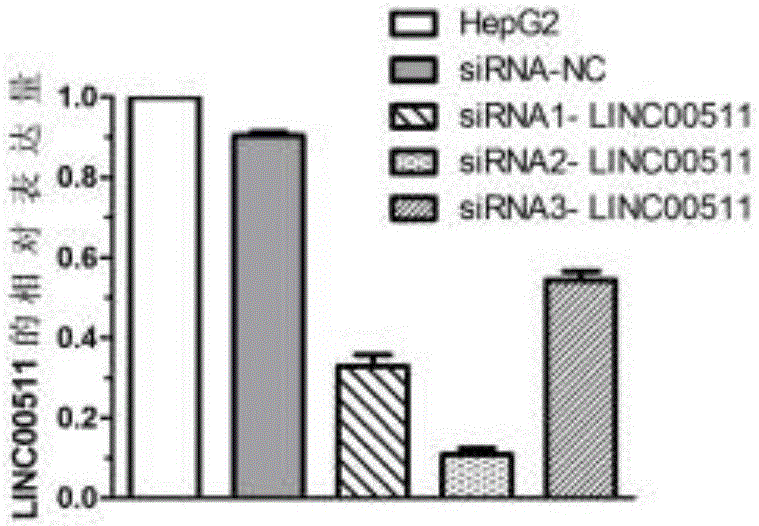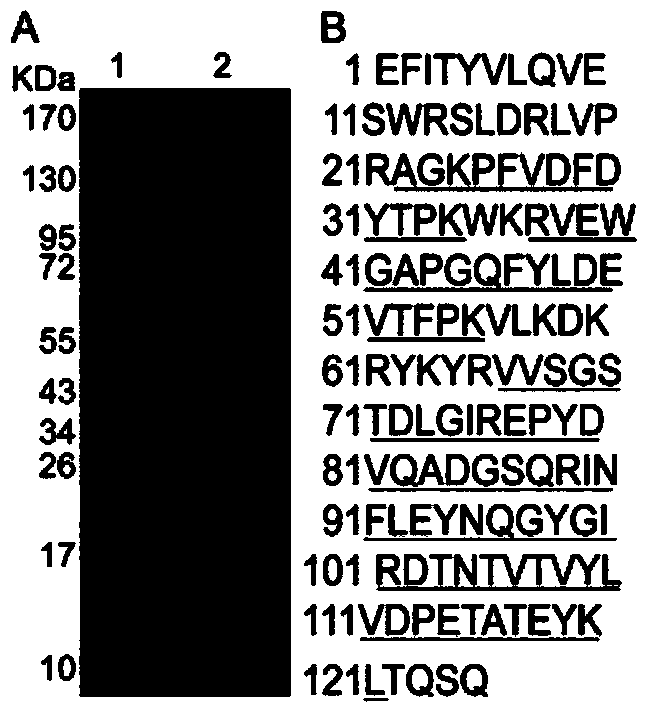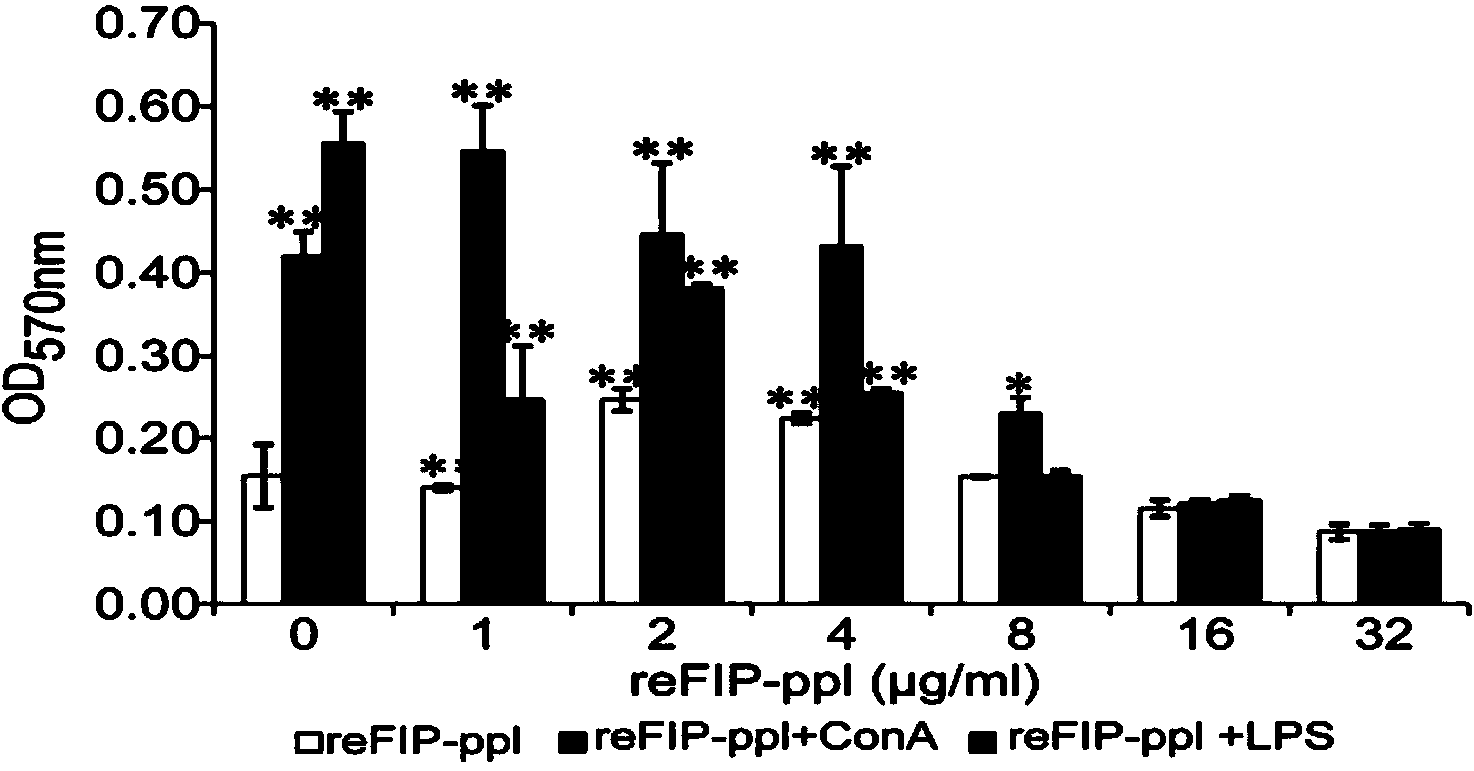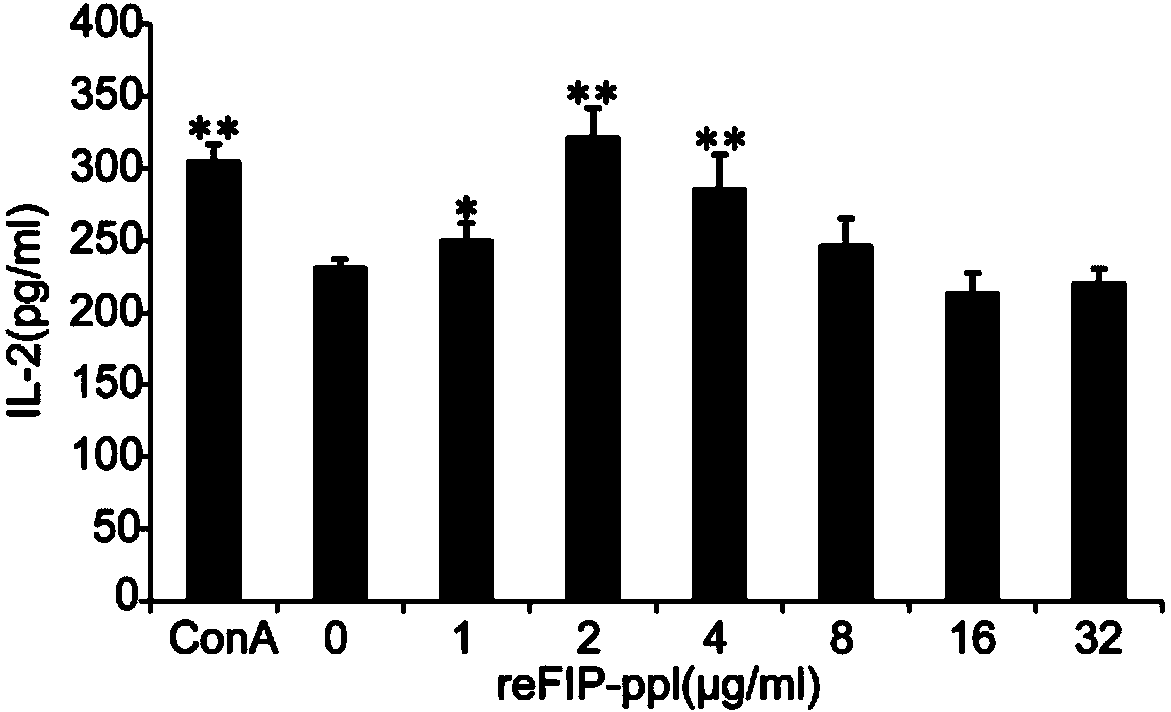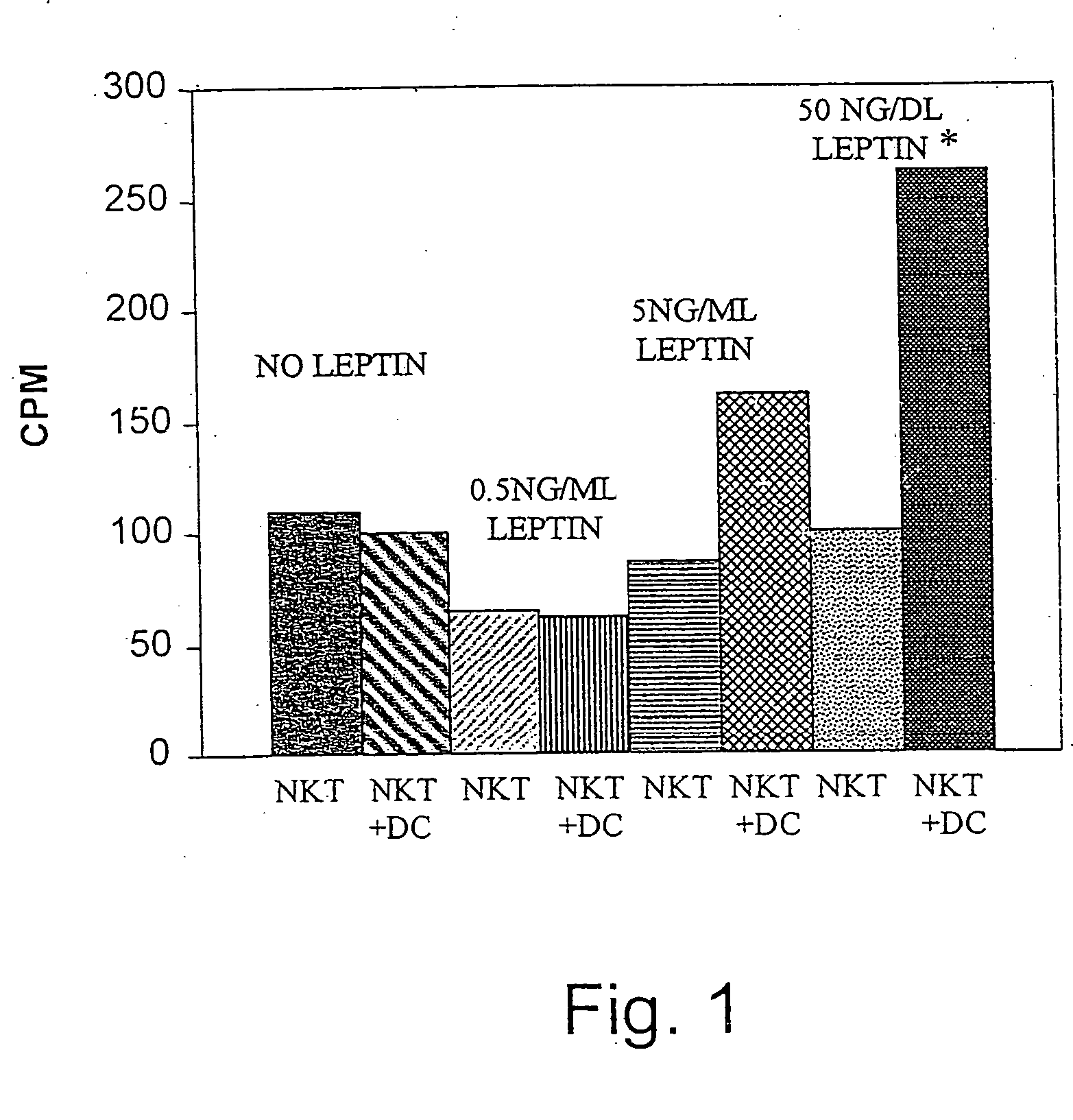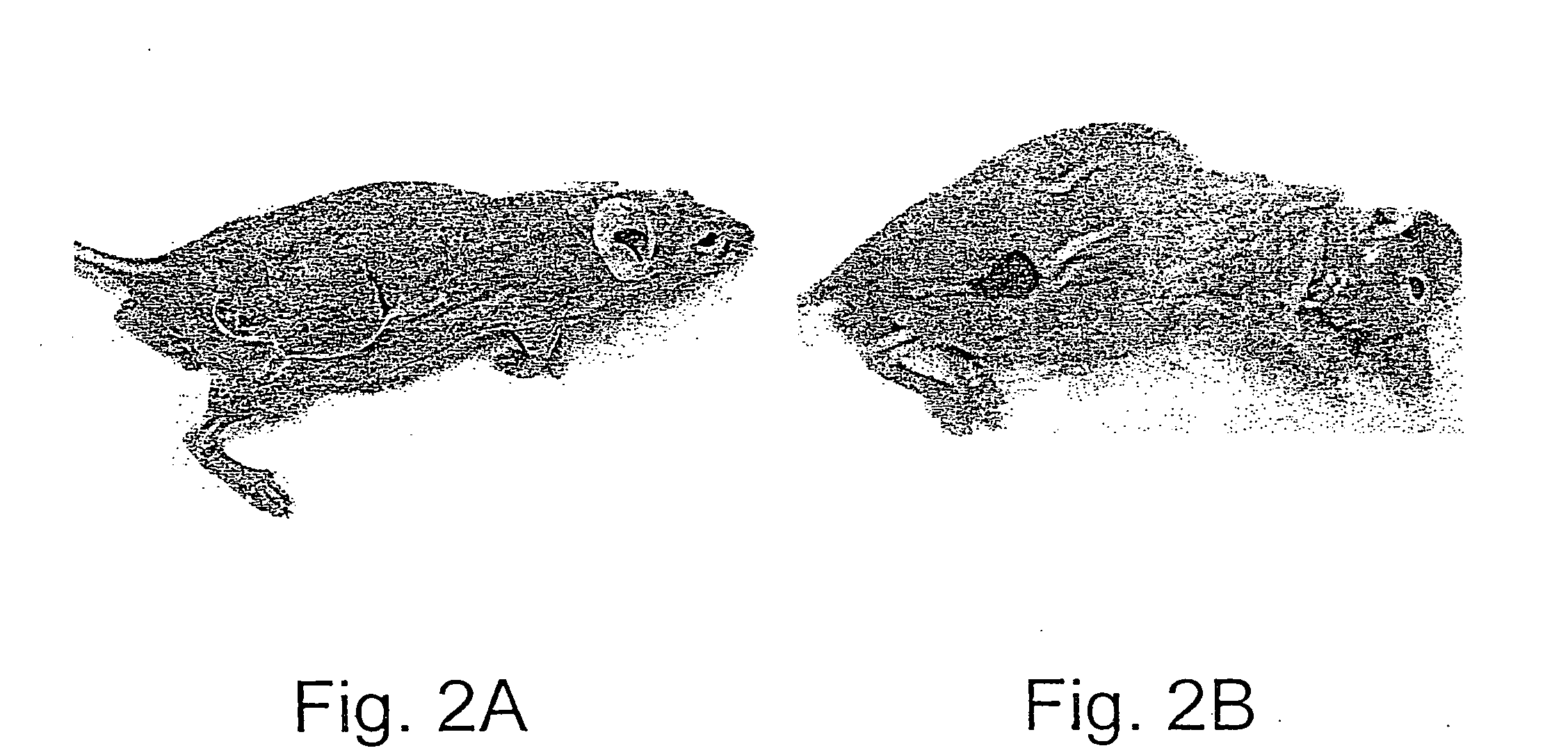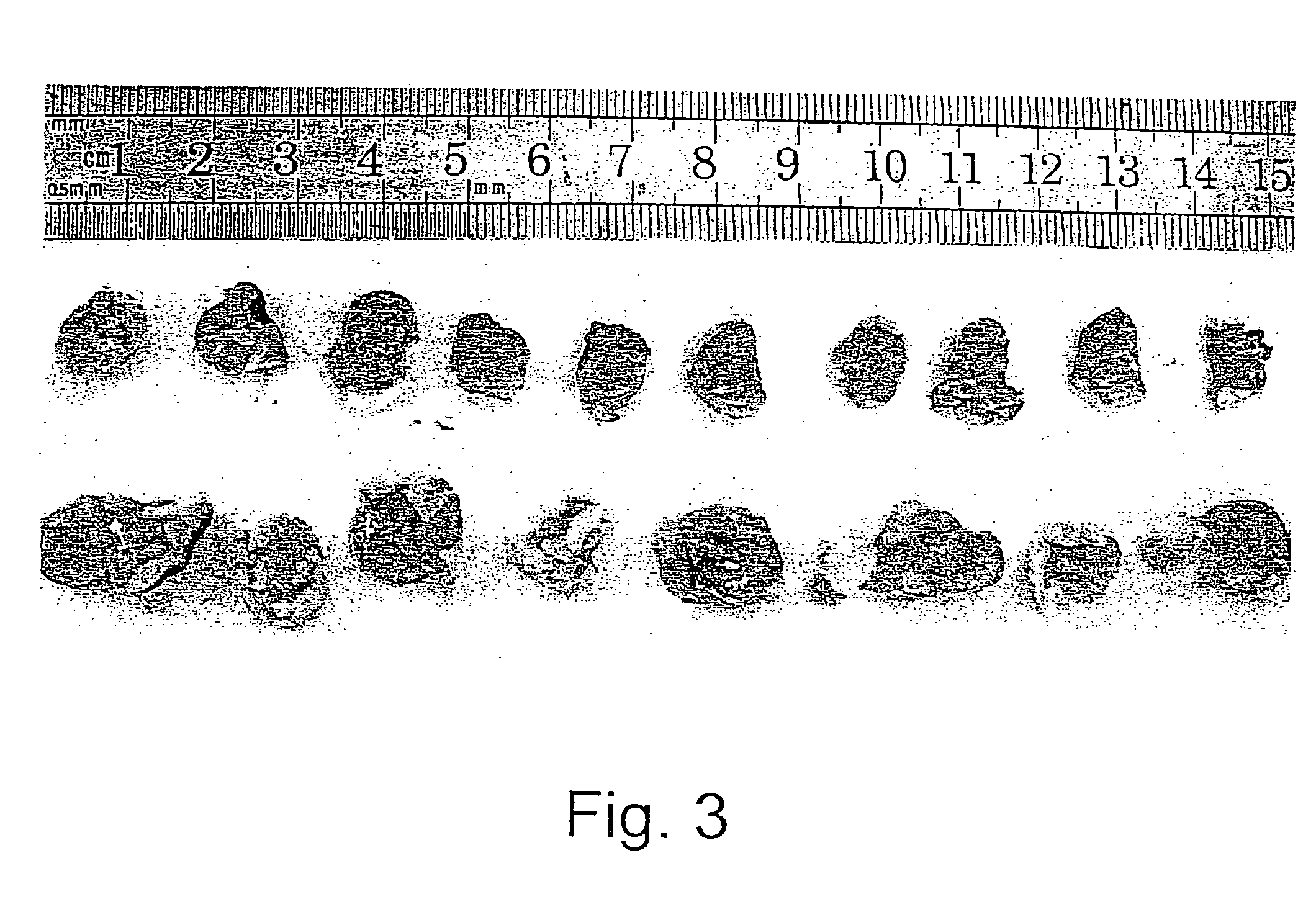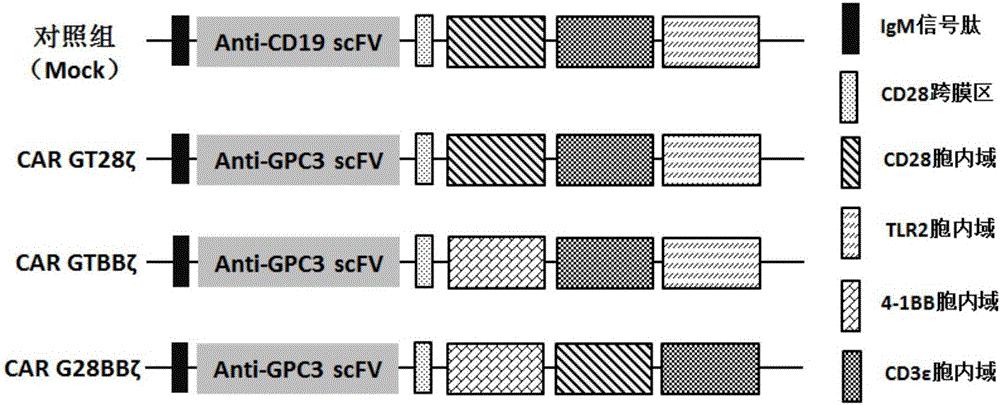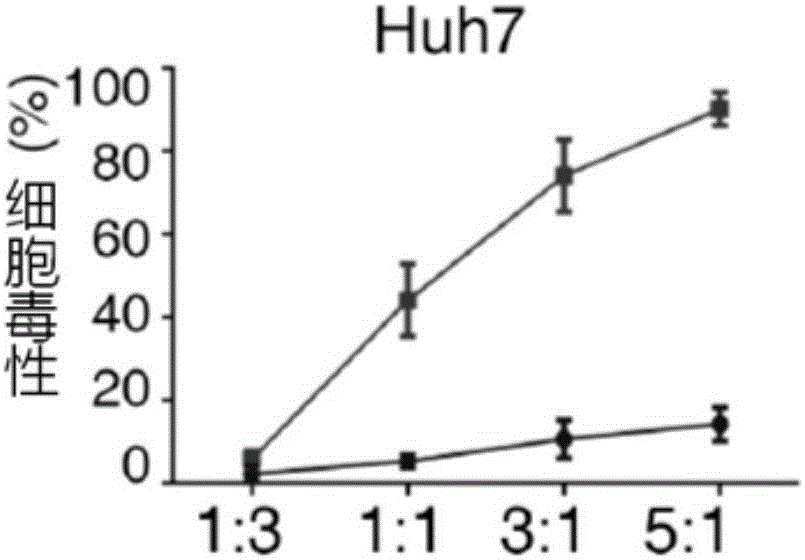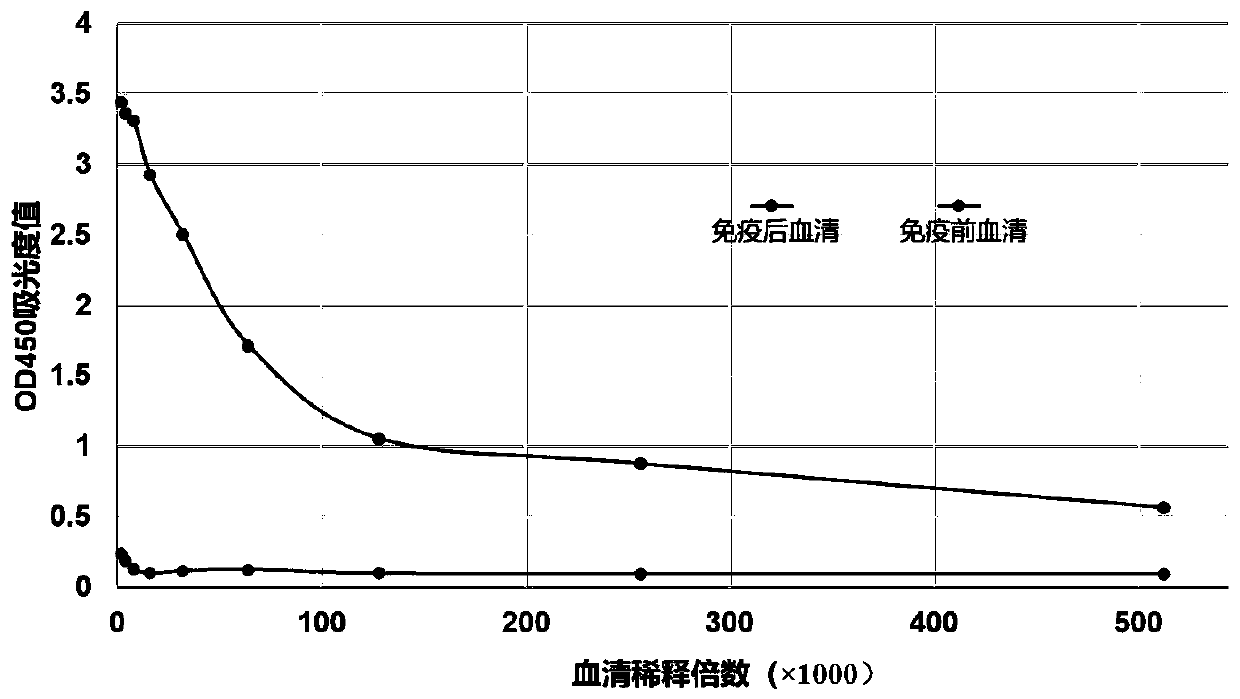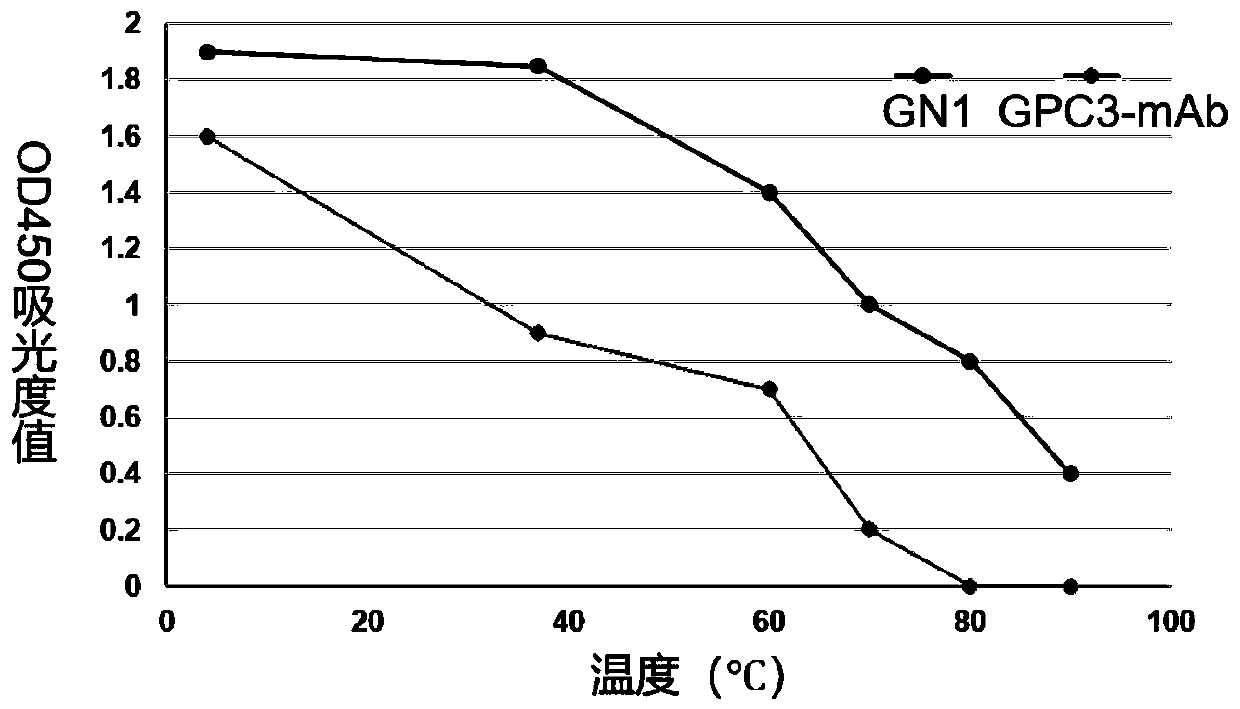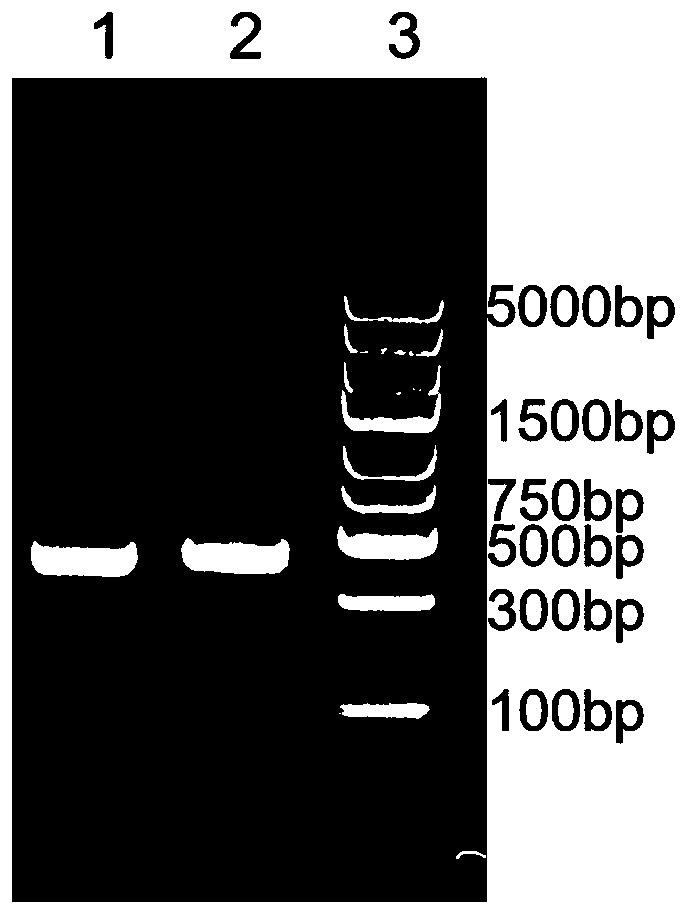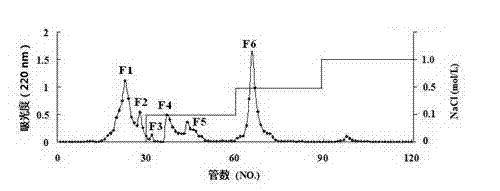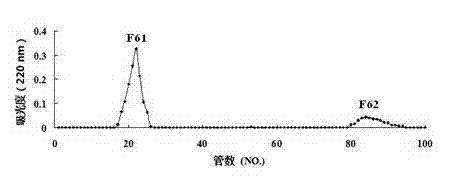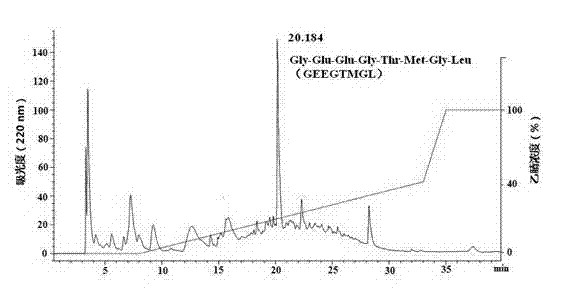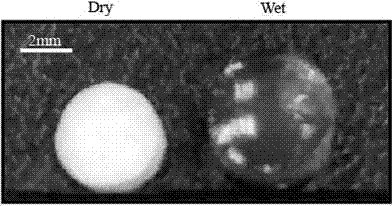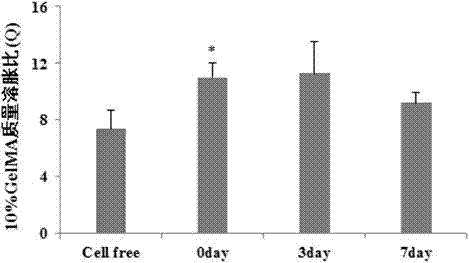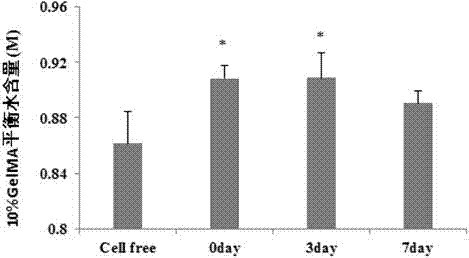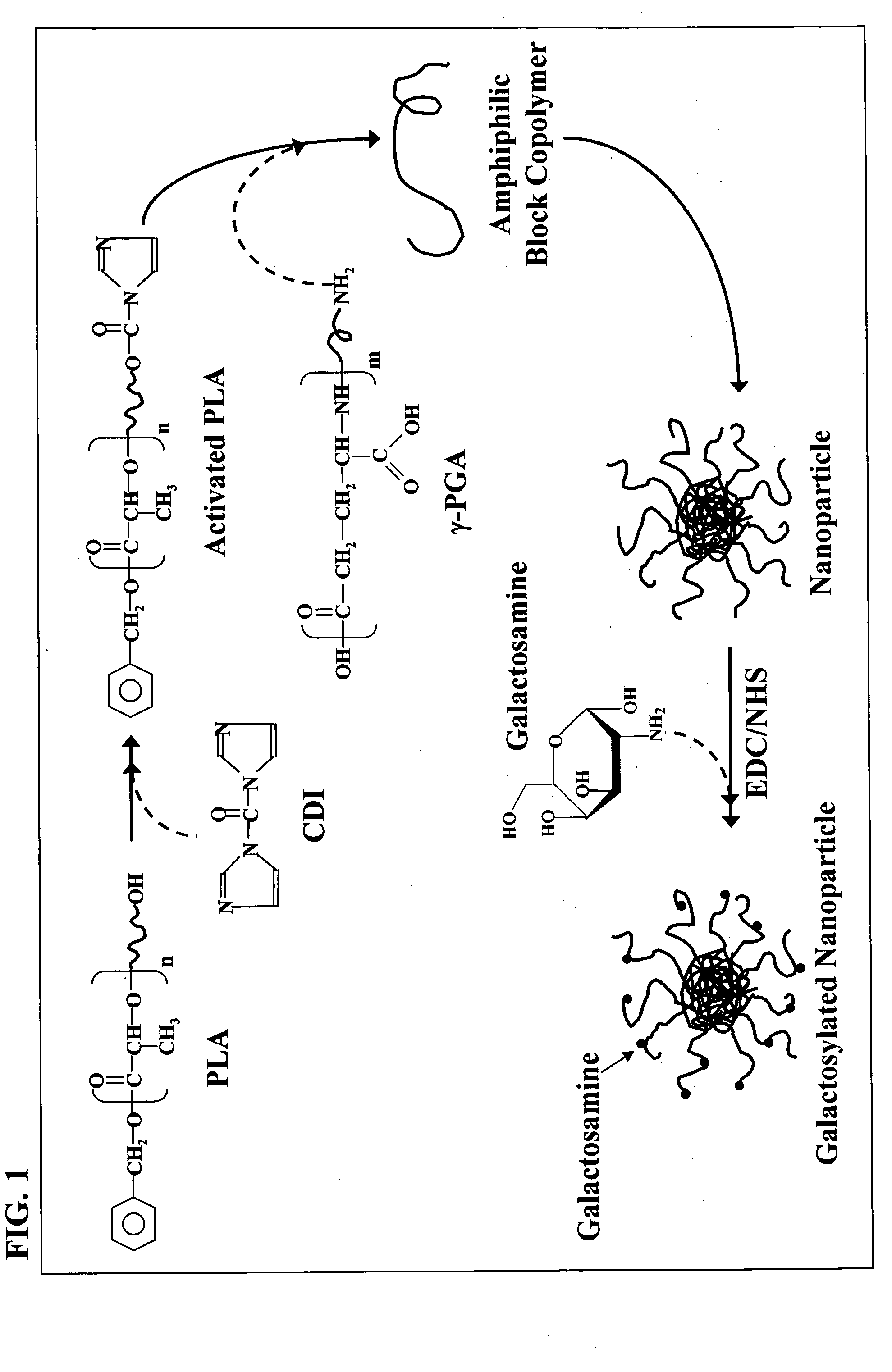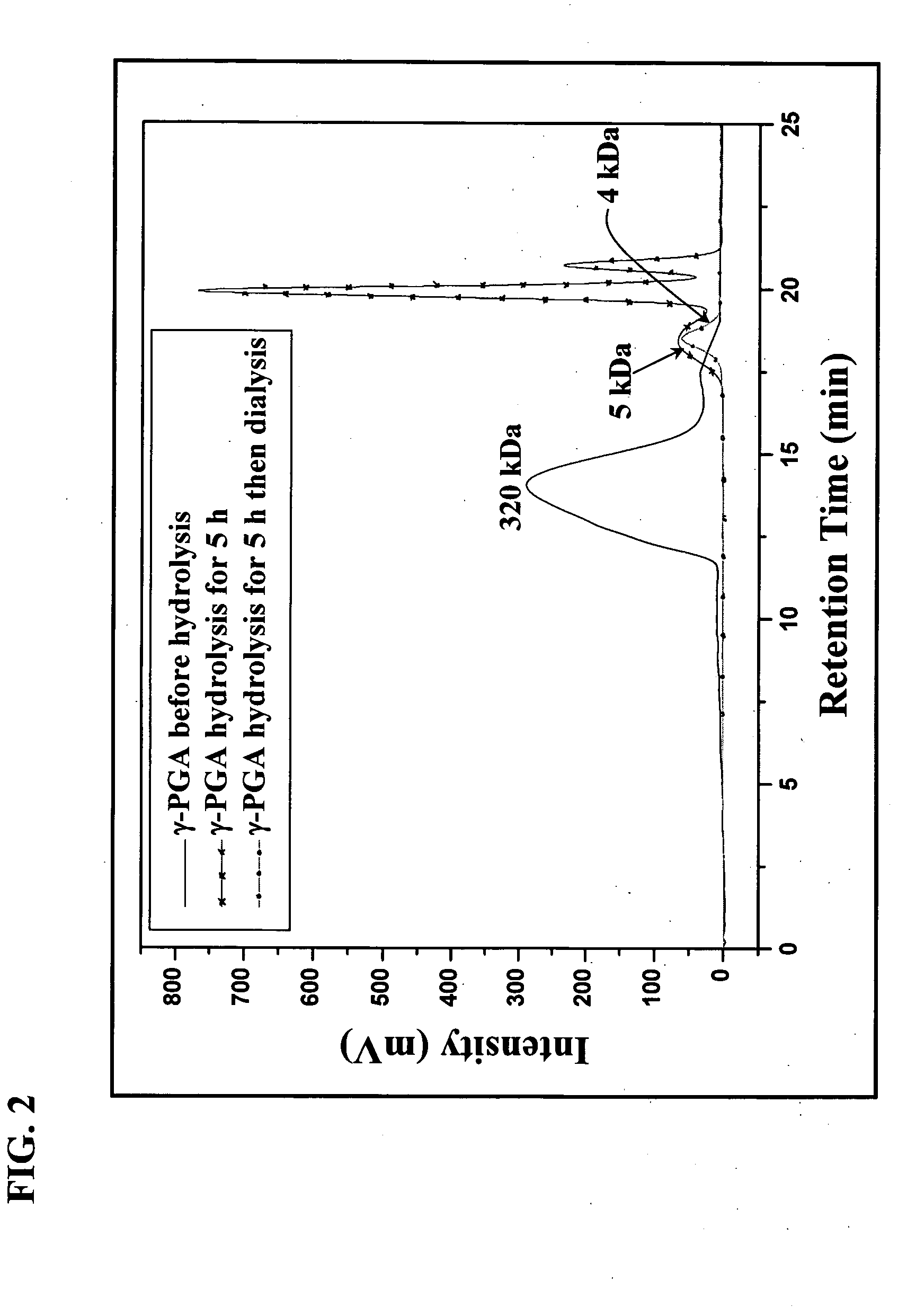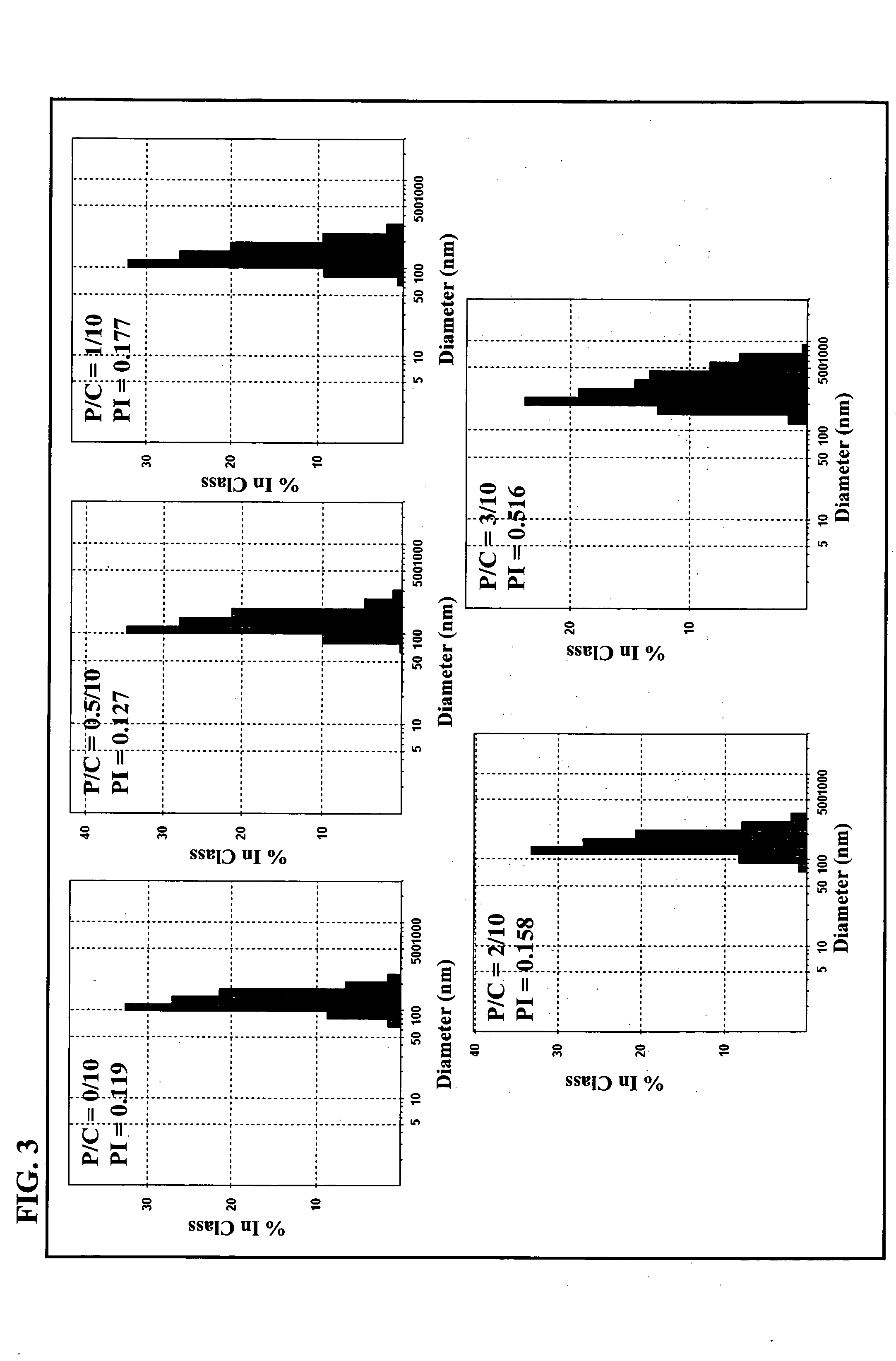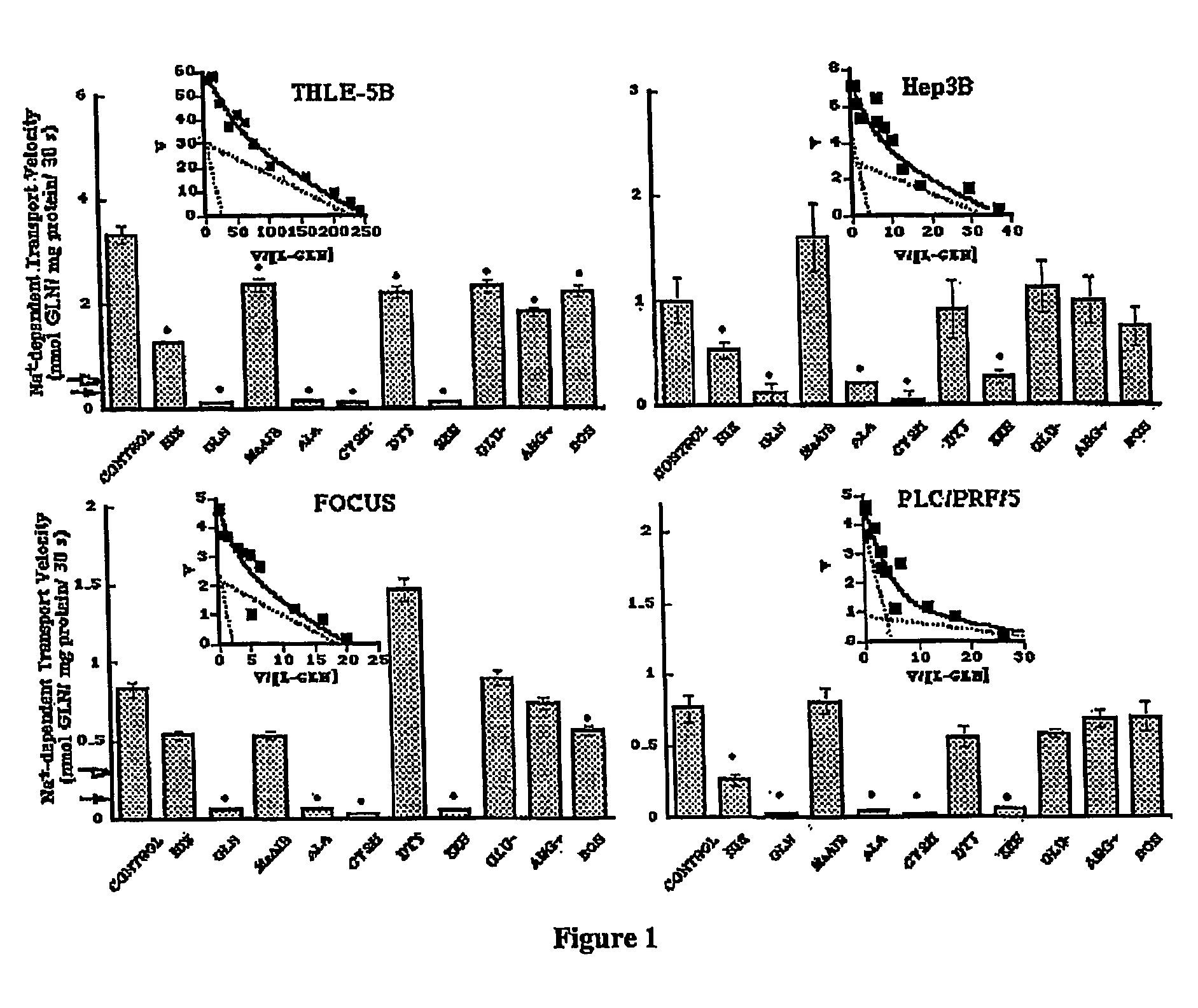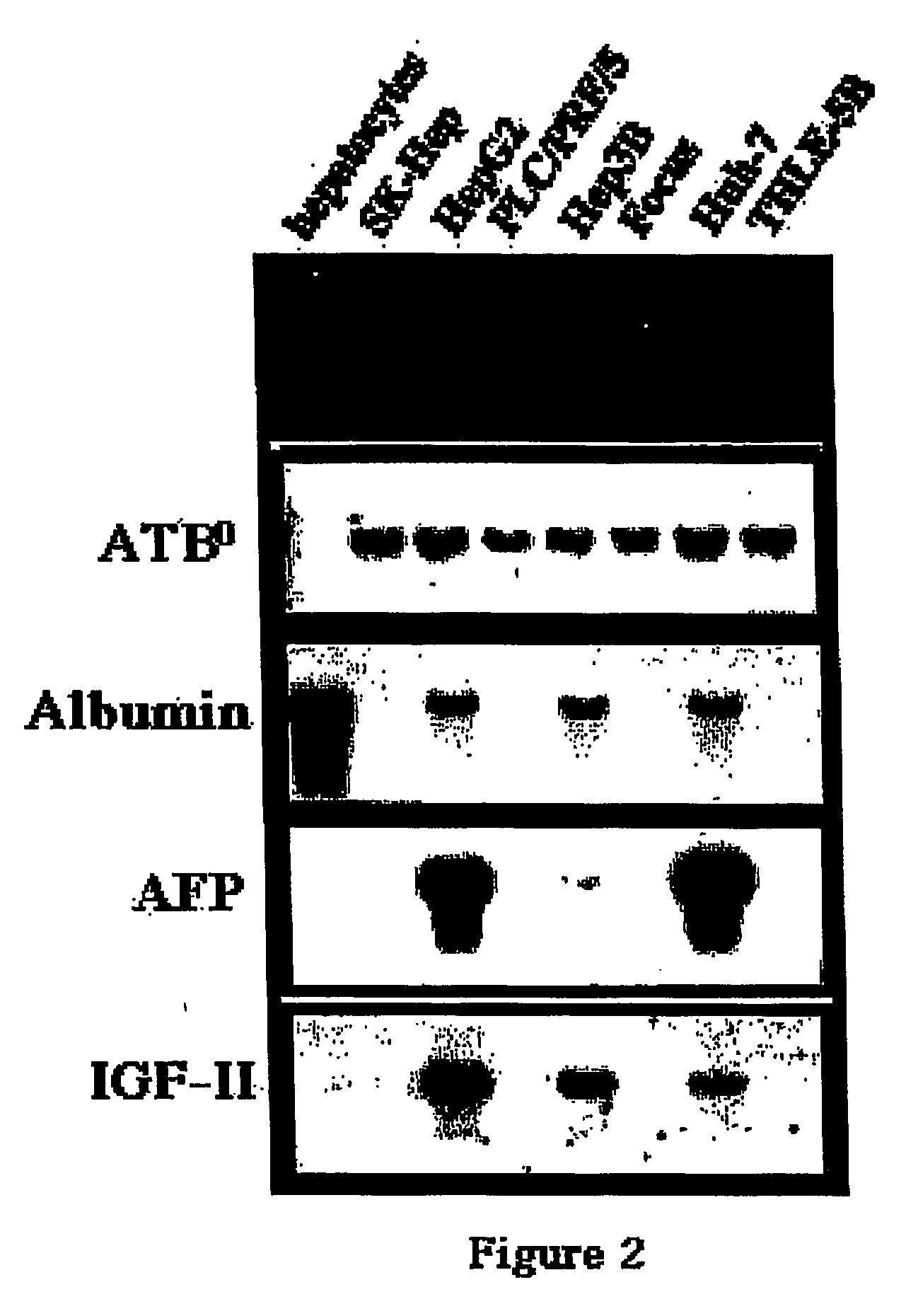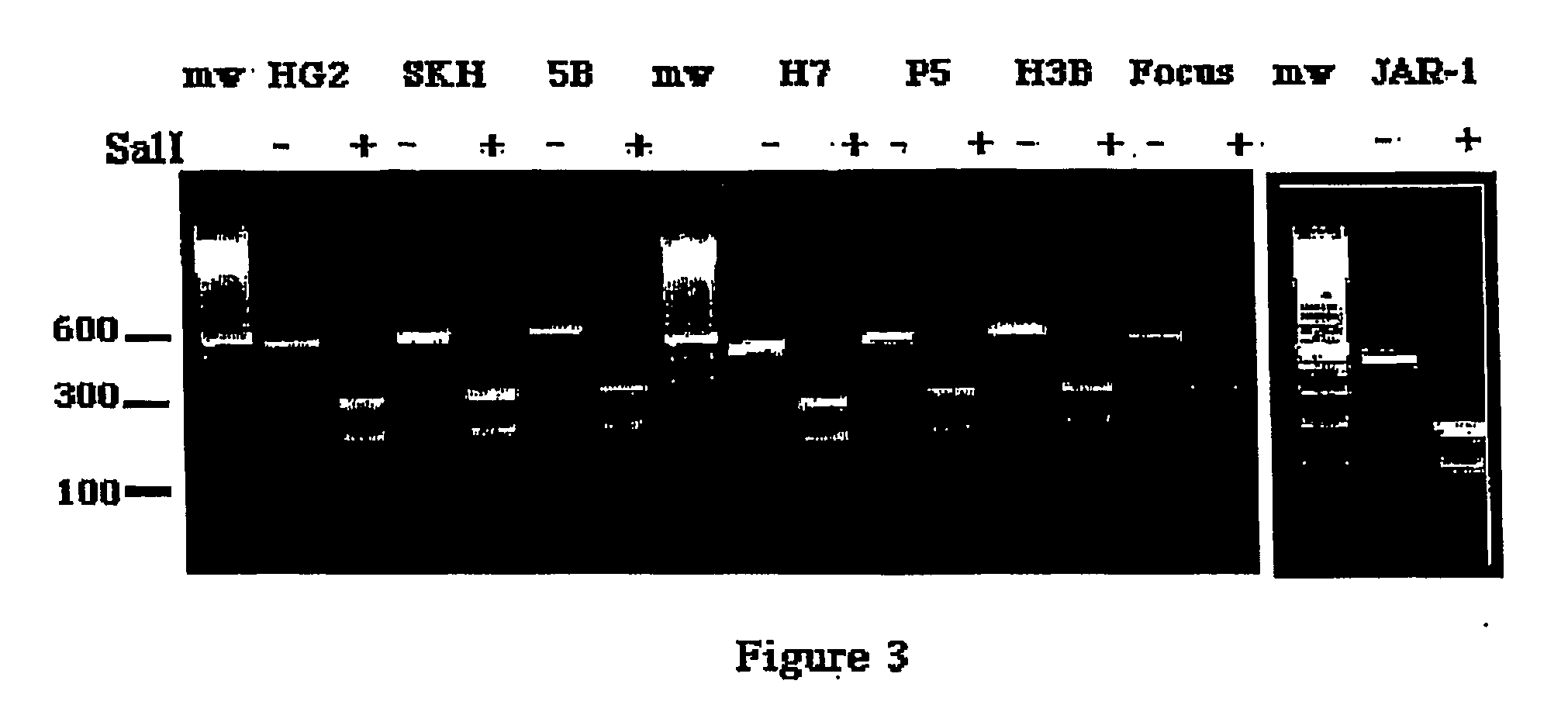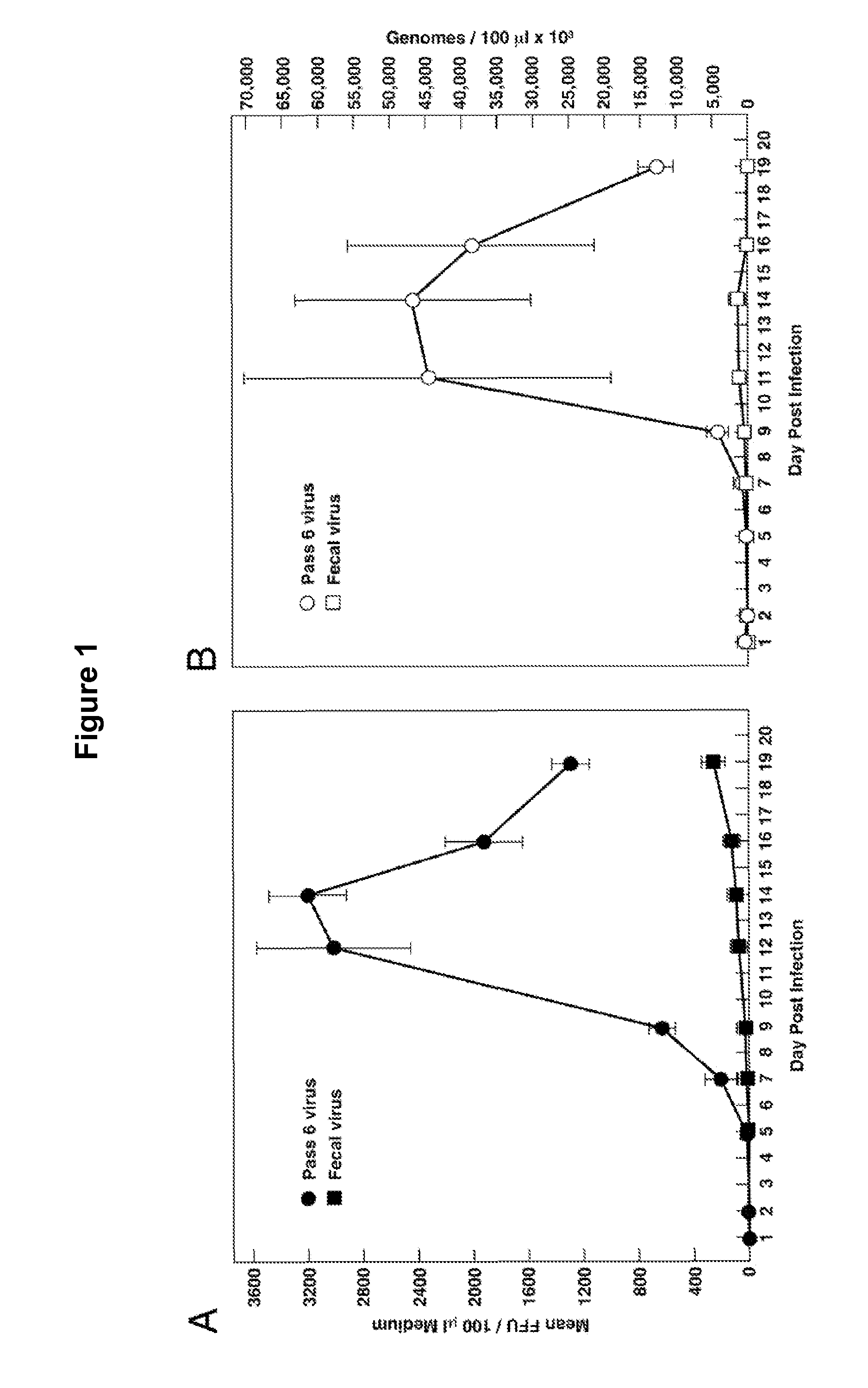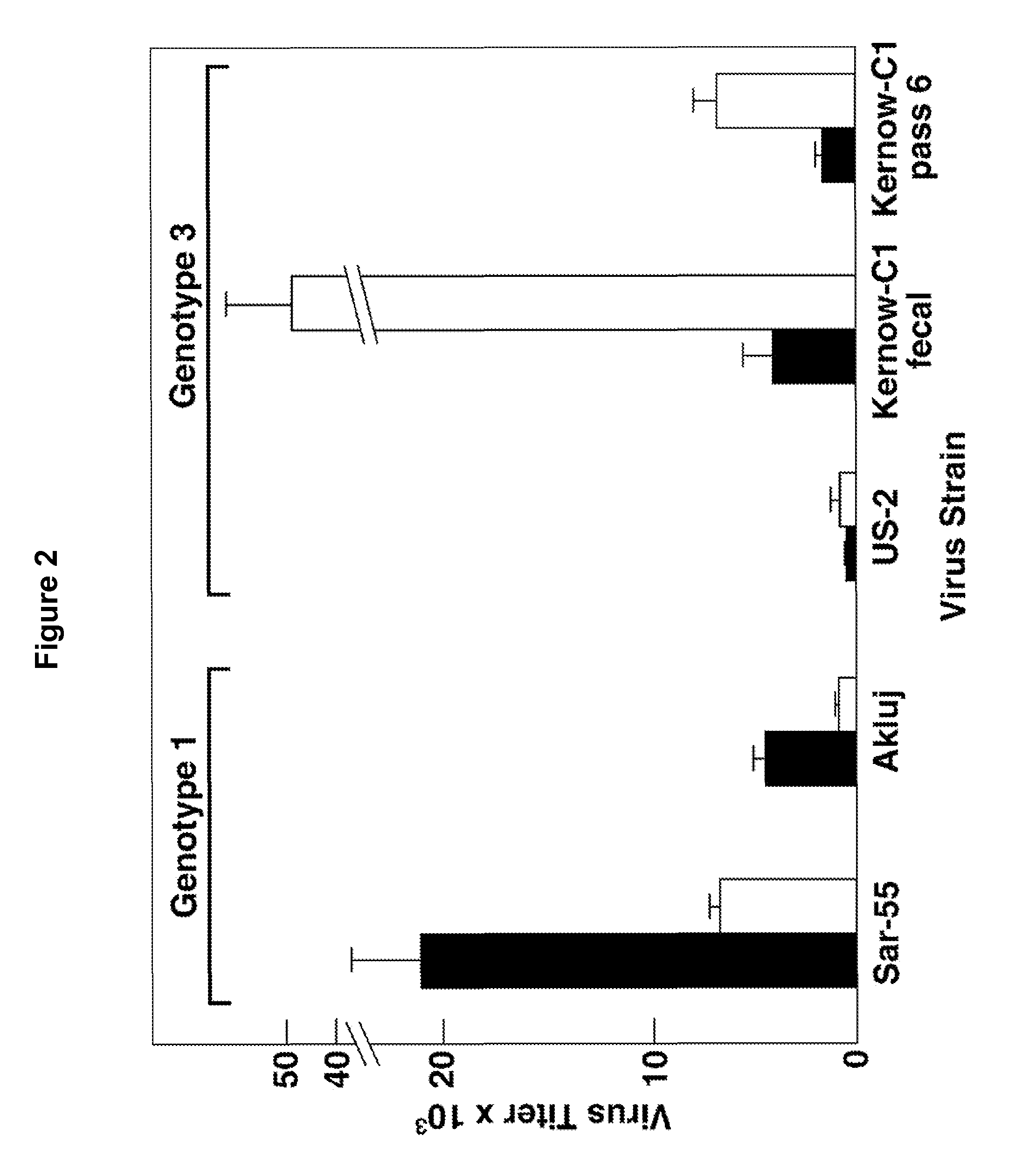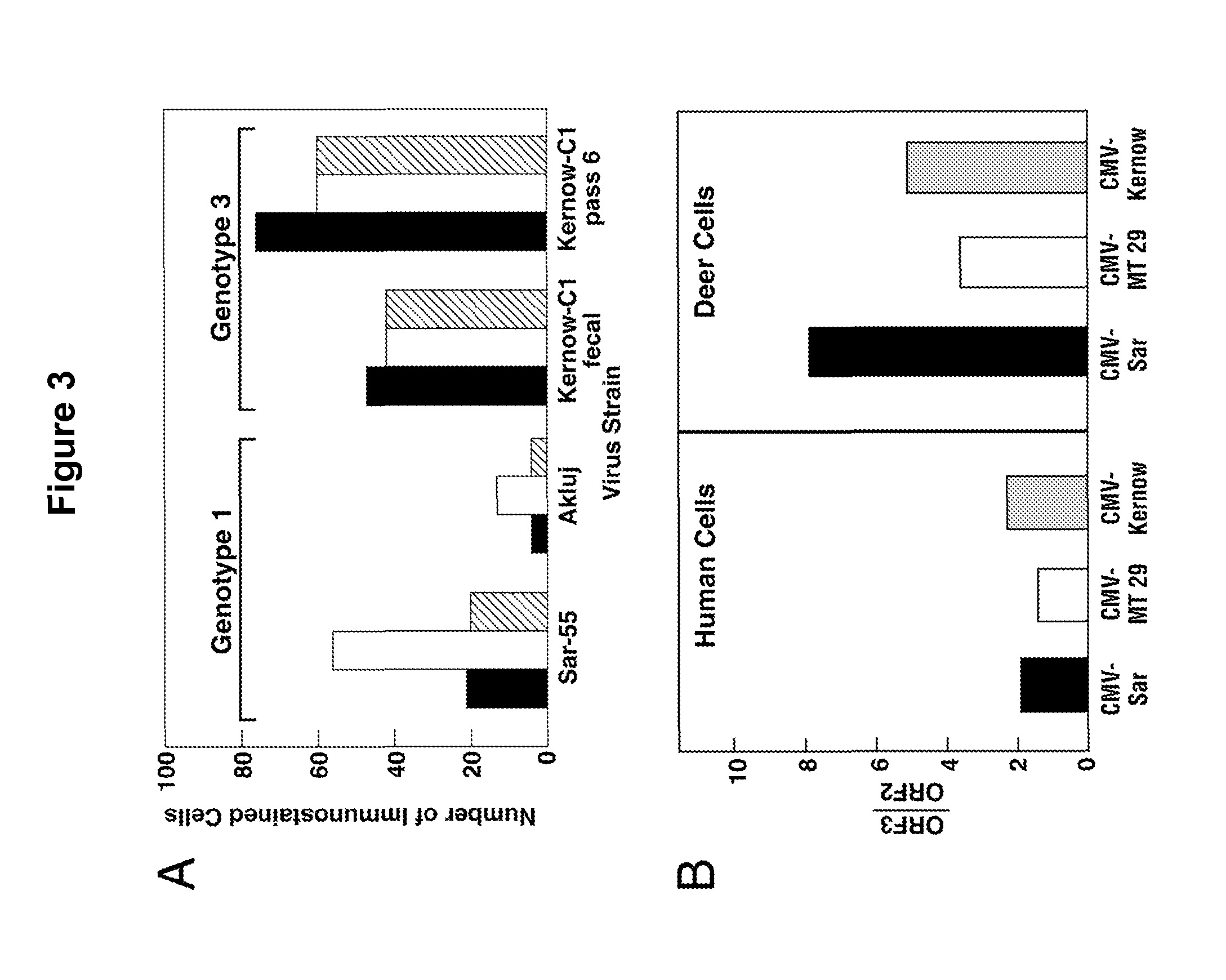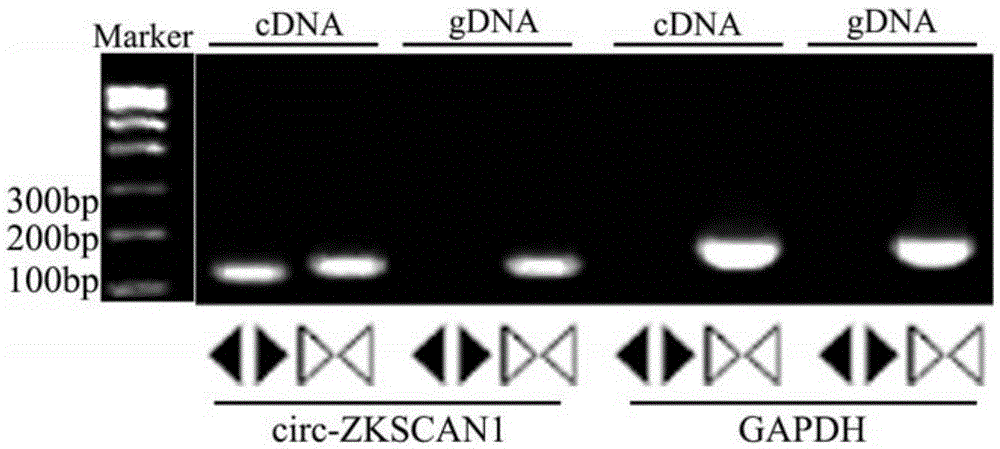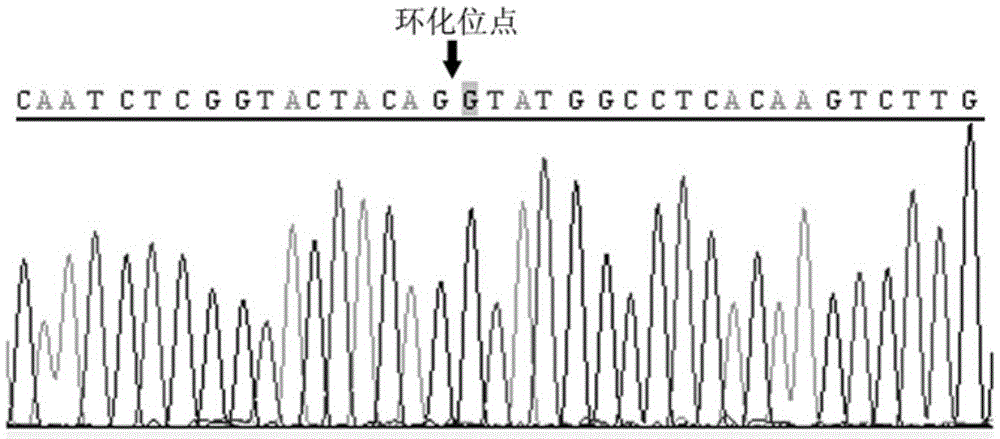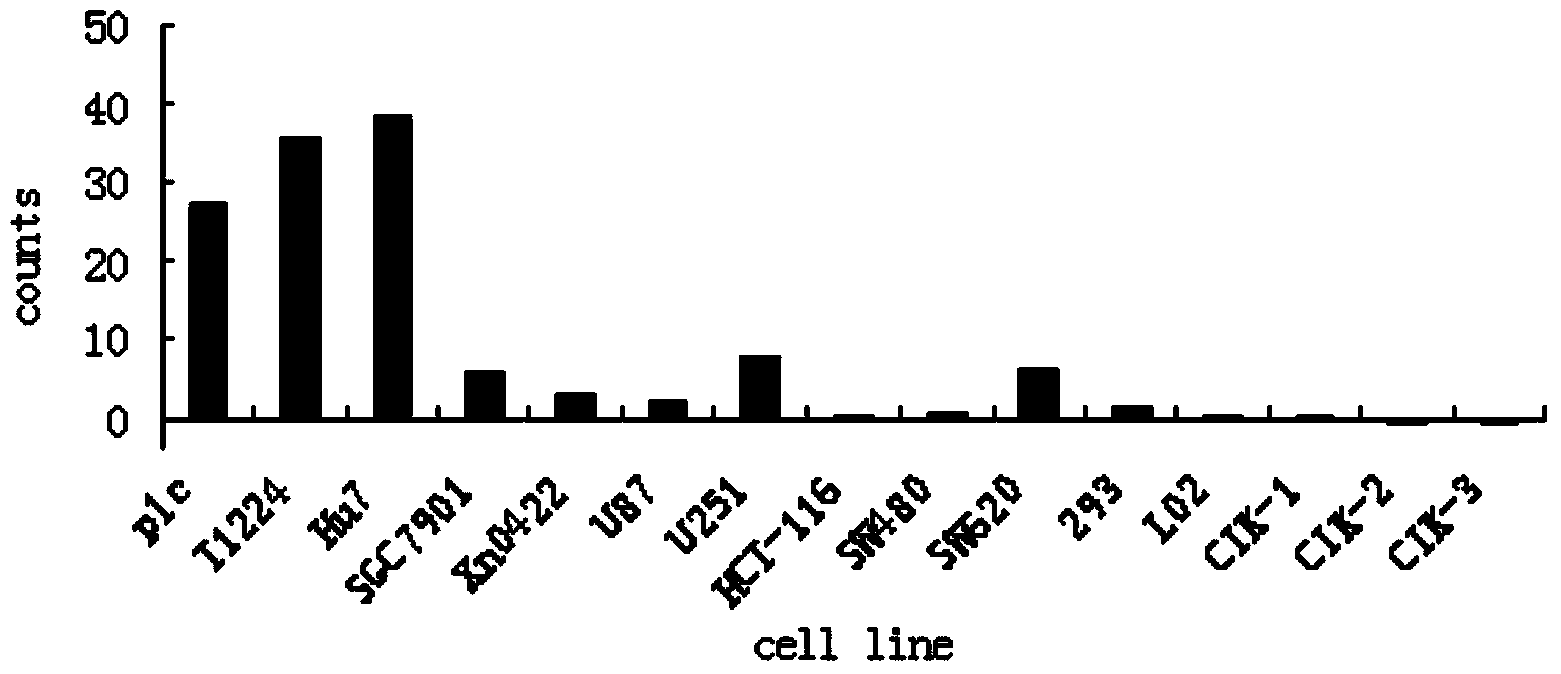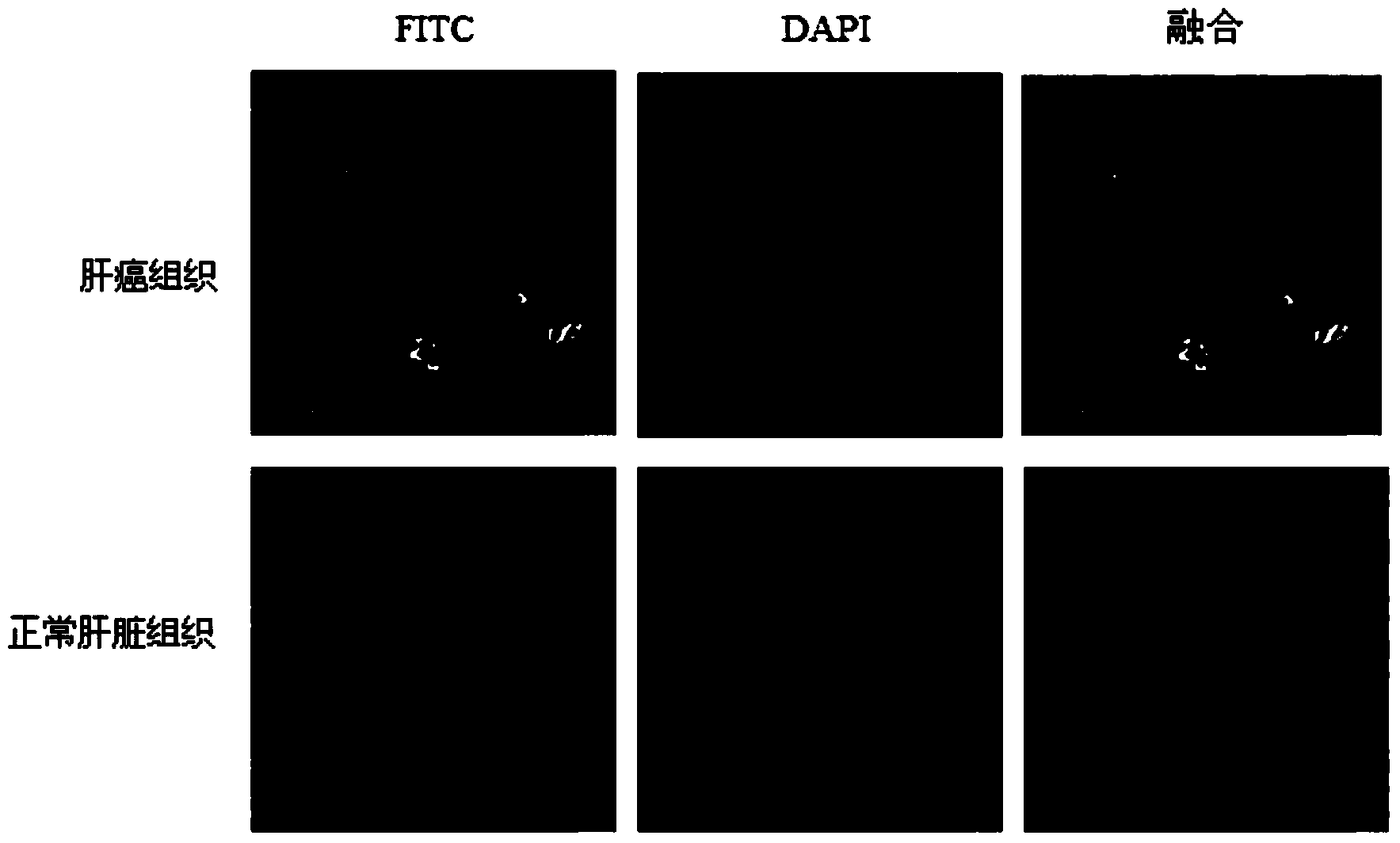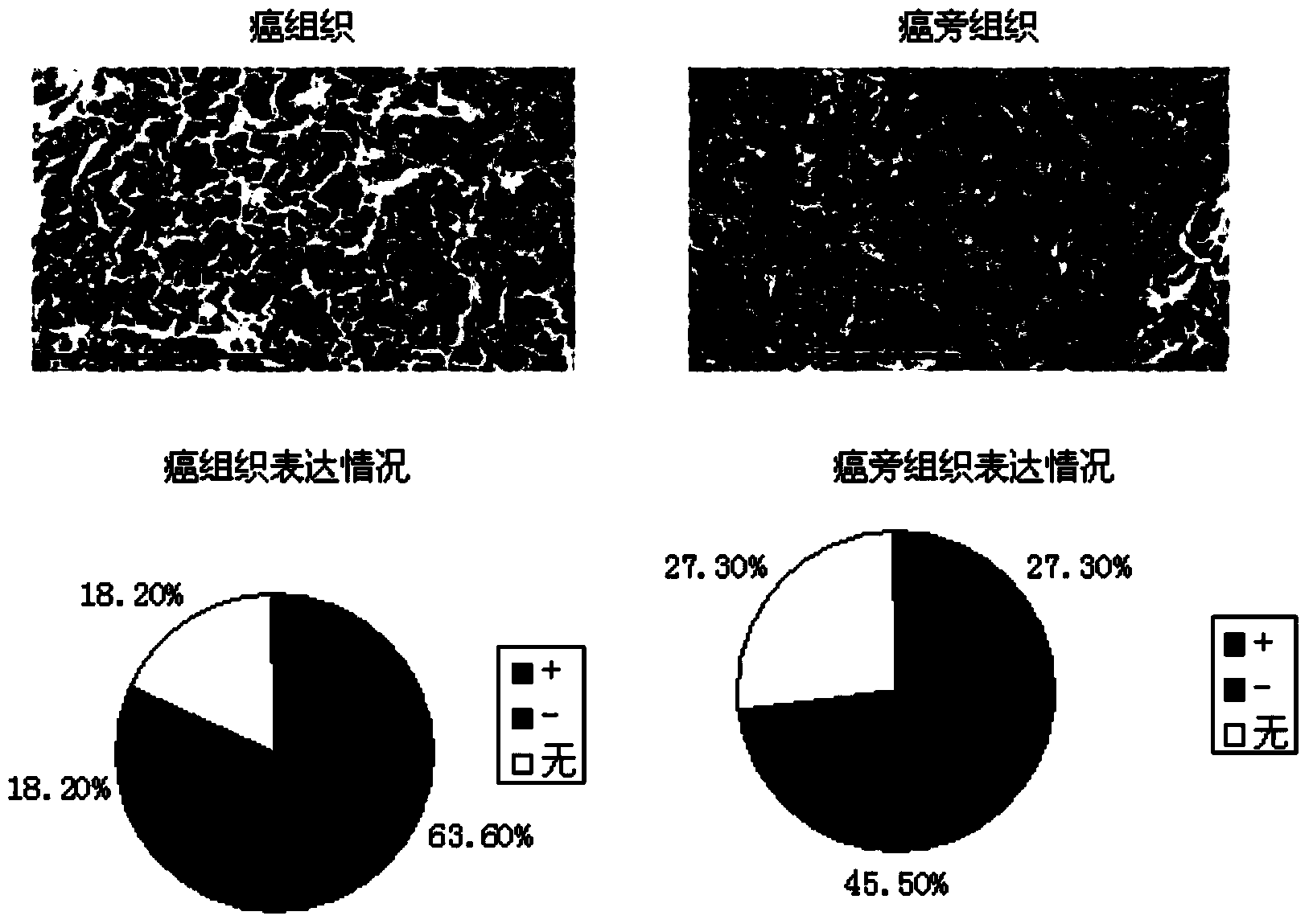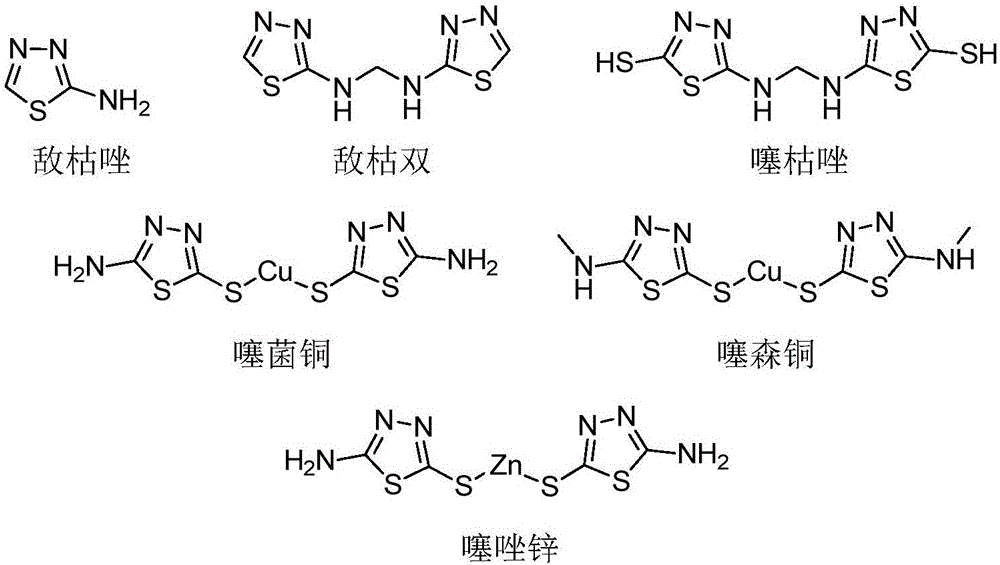Patents
Literature
756 results about "Hepatoma cell" patented technology
Efficacy Topic
Property
Owner
Technical Advancement
Application Domain
Technology Topic
Technology Field Word
Patent Country/Region
Patent Type
Patent Status
Application Year
Inventor
The hepatoma cell lines grown in the fully defined synthetic medium may provide a new approach for investigating the growth and metabolism of human hepatoma cells in vitro.
A and C macrocyclic oxidation substituted pentacyclic triterpanoids and preparation method and use thereof
InactiveCN101117348AStrong inhibitory activityOrganic active ingredientsMetabolism disorderDiseaseProstate cancer cell
The present invention relates to a pentacyclic triterpanoid derivative of multiple-oxide substitution of the A ring and the C ring and the medicine salt or solvate of the derivative, and the present invention also relates to the preparation method, the drug combination, and medical use of the derivative. The compound of the present invention has the functions of inhibiting the activity of six human tumor cell strains in vitro, such as human prostate cancer cell (PC-3), nasopharyngeal carcinoma cells (CNE), oral squamous carcinoma cell(KB), human lung cancer cell (A549), human hepatoma cell (BEL-7404), and human cervix cancer cell (Hela), and the function of the invention is at the same magnitude of the positive control of cisplatin, thereby the compound can be used as expected antitumor drug. The compound of the present invention also inhibits the alpha glucosidase strongly, and the inhibiting effect is greater than the positive control of acarbose, thereby the compound can be used as expected medicine for preventing and treating diabetes and the treatment of the virus diseases.
Owner:ZHEJIANG HISUN PHARMA CO LTD
AFP[158-166] specific TCR gene, its transgenic T cell, and in-vitro proliferation method and use of transgenic T cell
ActiveCN104087592AHigh activityImprove anti-tumor effectGenetic material ingredientsDigestive systemEpitopeIn vitro proliferation
The invention discloses an AFP[158-166] specific TCR gene, its transgenic T cell, and an in-vitro proliferation method and a use of the transgenic T cell. The AFP[158-166] specificity TCR gene is represented by SEQ ID NO.1 in a sequence table. The transgenic T cell of the AFP[158-166] specific TCR gene has a specific killing effect on AFP positive liver cancer cells. Artificial antigen presentation cells can present AFP[158-166] epitope peptides through the MHCI type molecule of the cell surface when the artificial antigen presentation cells are secreted by IL-15 to induce the AFP specific immune reaction, and the stimulation of the AFP[158-166] specific TCR gene transgenic T cell by the AFP[158-166] specific TCR gene can improve the proportion of the transgenic T cell, enhances the specificity and enhances the T cell activity and the antitumor capability in an auxiliary manner through the secretion of IL-15.
Owner:GENERAL HOSPITAL OF TIANJIN MEDICAL UNIV
Liver target anticancer nano prodrug system based on tree shaped polymer, preparation and use
InactiveCN101259284ALong-term cycleEnhance phagocytosisOrganic active ingredientsDigestive systemSide effectClinical efficacy
The invention relates to a liver targeting anticancer nanometer prodrug system basing on dendritic polymer, provides a method for preparing the prodrug system and the uses thereof and belongs to the technical field of biological medicine as well as the technical field of nano medicine. With the polyethylene glycol modified PAMAM treelike polymer of distal liver targeting group (T) as a carrier (T-PEG-PAMAM) and Doxorubicin (DOX) as treatment drug, the invention obtains the prodrug (T-PEG-PAMAM-DOX) through the covalent bond connection with degradable lysosome between the carrier and the Doxorubicin. The invention further provides the application of the liver targeting anticancer nanometer prodrug system basing on the dendritic polymer in the preparation of drugs for treating solid tumors. With the long-acting cycle in blood, the liver targeting anticancer nanometer prodrug system basing on the dendritic polymer can enhance the phagocytosis of hepatoma cells on polymers nano-micelles, realize the active and passive targeting on liver tumor tissues, improve the clinical efficacy and the bioavailability of present liver cancer therapeutic drugs and lower toxic and side effects.
Owner:EAST CHINA NORMAL UNIV
sgRNA of targeting IGF-IR gene, and applications thereof
InactiveCN107190006AReduced ability to migrateReduced transcript levelsHydrolasesStable introduction of DNACellular levelLiver cancer
The invention belongs to the technical field of gene engineering, and discloses sgRNA of targeting IGF-IR gene. The nucleotide sequence of the sgRNA of targeting IGF-IR gene is represented by SEQ ID NO:2. According to applications, a Crispr / cas9-sgRNA lentiviral vector system is adopted, knockout or modification of human hepatoma cell line IGF-IR gene on cellular level is realized successfully, hepatoma carcinoma cell IGF-IR gene transcriptional level is reduced obviously, hepatoma carcinoma cell proliferation, invasion, and migration capacities are reduced, a novel method is provided for treatment of hepatic carcinoma, and clinical application prospect is promising.
Owner:AFFILIATED HOSPITAL OF NANTONG UNIV
Method for enhancing anticancer capability of cells and enhanced type cells obtained by the method
InactiveCN108753817AEnhance the ability to resist liver cancer cellsIncrease lethalityGenetically modified cellsMammal material medical ingredientsEffector cellCell based
A method for enhancing anticancer capability of CIK cells is provided. The method includes knockout of a PD-1 gene of the CIK cells based on a CRISPR / Cas9 technique. The invention also provides enhanced type CIK cells obtained by the method. Experiments prove that the knockout of the PD-1 gene from the CIK cells can effectively enhance anti-hepatoma capability of the CIK cells, thus providing novel effector cells for tumor cellular immunotherapy.
Owner:北京华伟康信生物科技有限公司
CRISPR/Cas9 targeted-knockout human TCAB1 gene and specificity gRNA thereof
The invention belongs to the technical field of the molecular biology and the biomedicine, and particularly relates to application of a gRNA sequence based on a CRISPR / Cas9 system to cause tumor cell apoptosis. According to the design principle of CRISPR / Cas9, two target points are designed on a human genome, and corresponding oligos is synthesized and established on a px458 carrier. The CRISPR / Cas9 system guided by the gRNA is established in a human hepatoma cell line (HepG2) according to the design of the two target points, a human TCAB1 gene can be effectively knocked out, the system is easy to operate, and the knockout efficiency of the human TCAB1 gene is high. The CRISPR / Cas9 system guided by the gRNA can be expected to be applied in novel tumor treating medicine.
Owner:重庆威斯腾生物医药科技有限责任公司
Cancer chemopreventive agents
Extracts prepared from red and high-pigment beetroots (Beta vulgaris L.) with a solvent, such as a water-containing solvent, possess antioxidant activity as demonstrated by a panel of assays. These extracts also have an ability to induce quinone reductase in Murine hepatoma cell (Hepa 1c1c7) cultured in vitro. Fractions purified from the active extracts also possess antioxidant activity and retain quinone reductase-inducing activity in the Hepa 1c1c7 cell line. The active extracts, purified by column, thin layer, and high-performance liquid chromatographic techniques, include betalains. A method of extracting a betalain includes steps of freeze-drying a source containing the betalain; grinding the freeze-dried source; and extracting the betalain from the ground source with the solvent. Additionally, the betalain extract can be isolated betalain components, such as by chromatography.
Owner:WISCONSIN ALUMNI RES FOUND
siRNA of targeted long-chain noncoding RNA DDX11-AS1 and applications thereof in liver cancer treatment
ActiveCN108546702APrevent proliferationInhibition of clonogenicityOrganic active ingredientsMicrobiological testing/measurementCancer cell linesApoptosis
The invention discloses an siRNA of a targeted long-chain noncoding RNA DDX11-AS1 and applications thereof in liver cancer treatment. Through designing and synthesizing the siRNA of the DDX11-AS1 andtransfecting a liver cancer cell line with the siRNA, it is proved that the siRNA can targetedly inhibit expression of the DDX11-AS1, can significantly suppress liver cancer cell proliferation, invasion and migration and can induce liver cancer cell apoptosis. A novel target point for research and development of a liver cancer treatment medicine is provided.
Owner:XI AN JIAOTONG UNIV
Preparation method for chlorella polypeptide microcapsule
InactiveCN102847134APromote development and utilizationHas inhibitory effectHydrolysed protein ingredientsDigestive systemUltrafiltrationIon exchange
The invention provides a preparation method for a chlorella polypeptide microcapsule. The method comprises the following steps: extracting chlorella protein by using a low temperature ultrahigh pressure continuous flow cell crusher; hydrolyzing the chlorella protein with papain; filtering the hydrolyzed chlorella protein with an ultrafiltration centrifuge tube; then carrying out separation and purification by using ion exchange chromatography DEAE-52 and gel chromatography dextrangel G-25 columns; and finally utilizing complex coacervation to prepare the chlorella polypeptide microcapsule. The chlorella polypeptide microcapsule prepared in the invention has antitumor activity, e.g., the chlorella polypeptide microcapsule has inhibitory effects on in vitro growth of human hepatoma carcinoma cells HepG2 and the inhibition rate of the chlorella polypeptide microcapsule reaches 38% when concentration is 400 mu g / mL. Therefore, the chlorella polypeptide microcapsule prepared in the invention is beneficial for development and utilization of antitumor health food and medicinal products.
Owner:SOUTH CHINA UNIV OF TECH
Novel anti-tumor application of penicillium enol A1 from penicillium citrinum
InactiveCN103865808AGood antitumor activityOrganic active ingredientsFungiHuman gastric carcinomaPenicillium cainii
The invention relates to novel anti-tumor application of an alkaloid compound penicillium enol A1 from penicillium citrinum. The penicillium citrinum IBPT-5 is collected in the China Center for Type Culture Collection (CCTCC), which is located in Wuhan University and has the collection number of CCTCC NO:M2013713, on December 25, 2013. Experiments prove that the compound has better anti-tumor activity on various tumor cells, and can be used for preparing cell proliferation inhibition medicines or anti-tumor medicines for anti-tumor study, wherein tumor cells comprise human colon cancer cells SW620, human hepatoma cells Huh7, human gastric carcinoma cells BGC-823, human colon cancer cells SW480, human esophageal squamous carcinoma cells KYSE450, human esophageal cancer cells EC9706, human highly metastatic lung carcinoma cells 95-D, human hepatoma cells PLC and human gastric carcinoma cells HGC-27.
Owner:FUZHOU UNIV
Nanoparticles for targeting hepatoma cells
InactiveUS7348030B1High fluorescence intensityExtended durationOrganic active ingredientsBiocideMedicineNanoparticle
The nanoparticles composed of γ-PGA-PLA block copolymers that are conjugated with galactosamine as a potential drug delivery system and loaded with anticancer drugs for treating liver cancers.
Owner:GP MEDICAL
Single-stranded deoxyribonucleic acid (ssDNA) aptamer targeting human highly metastatic hepatoma carcinoma cell and application thereof
ActiveCN102766634AAvoid troubleOrganic active ingredientsMicrobiological testing/measurementLymphatic SpreadNucleotide
The invention discloses a single-stranded deoxyribonucleic acid (ssDNA) aptamer targeting human highly metastatic hepatoma carcinoma cell and an application of the ssDNA aptamer, and relates to the field of diagnosis and treatment of the recurrence and metastasis of the hepatocellular carcinoma, so that the high-efficient novel specific molecules are provided for the diagnosis and treatment of the recurrence and metastasis of the hepatocellular carcinoma. According to the invention, a subtractive cell-SELEX technology is applied, two hepatoma carcinoma cell systems with same genetic background and obviously different metastatic potentials are a subtractive target and a screening target, respectively, and the hepatoma carcinoma cell systems are MHCC97-L (low metastasis) and HCCLM9 (high metastasis), so that the ssDNA aptamer is capable of specifically recognizing the highly metastatic potential hepatoma carcinoma cell HCCLM9. The aptamer is a single-stranded DNA molecular probe capableof specially combining with a surface of a human highly metastatic hepatoma carcinoma cell membrane, and a nucleotide sequence of aptamer is represented by SEQ ID No.1. The aptamer is expected to play an important role in preparation of a reagent for diagnosing or treating the hepatocellular carcinoma.
Owner:WUHAN UNIV
High metastatic potential hepatoma cell line capable of steady autophagy indication, and establishment method and application method thereof
InactiveCN102115730AHigh metastatic potentialDynamic observation of autophagy changesMicrobiological testing/measurementMicroorganism based processesMorphological filterIn vivo
The invention belongs to the field of biomedical science, and aims to provide a high metastatic potential hepatoma cell line capable of steady autophagy indication, and an establishment method and an application method thereof. Lentivirus expression vectors containing EGFP (enhanced green fluorescent protein)-LC3 (light chain 3) autophagy reporter genes are constructed and used to infect hepatoma cells with high metastatic potential, so that host cells can express the EGFP-LC3 steadily and efficiently and indicate autophagy changes of the hepatoma cells steadily. To apply the cell line, metastasis research models can be established in vitro and in vivo for the observation on autophagy changes during metastasis, and the cell autophagy changes can be analyzed rapidly and quantitatively by adopting an image analysis method based on Top-hat operators and morphological filter. The high metastatic potential hepatoma cell line has the characteristics that autophagy indication is conducted steadily, reliably and sensitively in a real-time manner, the metastasis occurs definitely, the autophagy is quantified rapidly and accurately, the operation is simple and convenient, and the like, and can greatly facilitate correlation study on autophagy and metastasis.
Owner:ZHONGSHAN HOSPITAL FUDAN UNIV
Novel anti-tumor application of penicillium enol B1 from penicillium citrinum
InactiveCN103865809AGood antitumor activityOrganic active ingredientsFungiHuman gastric carcinomaPenicillium cainii
The invention relates to novel anti-tumor application of an alkaloid compound penicillium enol B1 from penicillium citrinum. The penicillium citrinum IBPT-5 is collected in the China Center for Type Culture Collection (CCTCC), which is located in Wuhan University and has the collection number of CCTCC NO:M2013713, on December 25, 2013. The compound has good anti-tumor activity to various tumor cells, and can be used for preparing cell proliferation inhibition medicines or anti-tumor medicines for anti-tumor study, wherein tumor cells comprise human colon cancer cells SW620, human hepatoma cells Huh7, human gastric carcinoma cells SGC-7901, human gastric carcinoma cells BGC-823, human colon cancer cells SW480, human esophageal cancer cells EC9706, human highly metastatic lung carcinoma cells 95-D, human hepatoma cells PLC, human gastric carcinoma cells HGC-27 and human lymphoma cells RAJI.
Owner:FUZHOU UNIV
Marine bacillus and its polypeptide with antitumor activity
InactiveCN103224898AImprove thermal stabilityStrong cytotoxicityBacteriaPeptide/protein ingredientsHuman gliomaCytotoxicity
The invention relates to a marine bacillus and its polypeptide with antitumor activity. The strain is preserved at China Center for Type Culture Collection in Wuhan, and its preservation number is CCTCC M 2013063. A novel marine bacillus polypeptide with anti-tumor activity is obtained from a fermentation product of the strain. By means of an MTT method, the invention finds that the polypeptide has an obvious proliferation inhibition effect on human hepatoma carcinoma cell BEL-7402, human breast cancer cell MCF-7, human glioma cell U251, human non-small-cell lung cancer cell A549 and other tumor cells, has relatively small cytotoxicity on human fibroblast HFL1, and can be applied in drugs treating human liver cancer, gliomas, lung cancer and breast cancer.
Owner:YELLOW SEA FISHERIES RES INST CHINESE ACAD OF FISHERIES SCI
Nanoparticles for targeting hepatoma cells
Owner:GP MEDICAL
Nanoparticles for targeting hepatoma cells and delivery means
The invention discloses a system, method and pharmaceutical composition of nanoparticles for lodging in a target tissue cell in situ of an animal subject, the nanoparticles comprising PGA-PLA block copolymers that are conjugated with a ligand, wherein the ligand has ligand-receptor binding affinity for the ligand to bind a surface receptor of the tissue cell.
Owner:GP MEDICAL
Biological marker for diagnosing and treating liver cancer
ActiveCN106834528AImprove accuracyImprove the quality of lifeMicrobiological testing/measurementAntineoplastic agentsHepatoma cellLiver cancer
The invention discloses a biological marker for diagnosing and treating liver cancer. Specifically, the marker is LINC00511. According to the biological marker, a condition that differential expression of the LINC00511 is related with occurrence and development of the liver cancer is found for the first time; in patients with the liver cancer, expression of the LINC00511 is regulated up to remind that LINC00511 gene expression intervention possibly becomes a new way for treating the liver cancer. In order to further identify, the expression of the LINC00511 is reduced through an inhibitor and the proliferation of liver cancer cells and the quantity of cell formation colonies can be remarkably reduced.
Owner:TAIZHOU MUNICIPAL HOSPITAL
Immunomodulatory protein FIP-ppl of fungus and gene of protein
The invention provides a novel immunomodulatory protein FIP-ppl derived from a fungus by applying a genetic engineering means for the first time. According to the invention, a gene which codes the protein is provided and synthesized. The protein FIP-ppl has immunomodulatory and anti-tumor effect. Experiments verify that the protein has a catalytic splitting effect on splenic lymphocyte and can add synthesis of interleukin 2; the protein has remarkable suppress proliferation and apoptosis-inducing effects of the protein on hepatoma carcinoma cell HepG2 and gastric carcinoma cell MCG823 are further verified. The protein FIP-ppl provided by the invention is lowly homological with almost found immunomodulatory proteins of fungi and is a novel immunomodulatory and anti-tumor biological preparation.
Owner:INST OF AGRO FOOD SCI & TECH CHINESE ACADEMY OF AGRI SCI
Methods and uses of leptin in immune modulation and hepatocellular carcinoma
Leptin was previously demonstrated to exert potent immune modulatory properties in several immune mediated disorders. The aim of the study was to determine leptin's anti-tumor effect in a murine model of human hepatocellular carcinoma (HCC). In vivo, Athymic T cell deficient (nude) mice transplanted with 1×106 human Hep3B cells, followed by administration of two daily intraperitoneal doses of 0.5 mg / gram leptin for 6 weeks. Leptin administration induced a significant reduction in tumor size and improved survival in nude mice. Histologically, tumors of leptin-administered mice featured increased inflammatory exudate in interphase areas. Leptin-induced tumor suppression was associated with a significant increase in peripheral natural killer (NK) cell number. Splenocytes from leptin-treated mice featured decreased expression of CIS mRNA. To determine which lymphocyte subset is a prerequisite for the anti tumor effect of leptin, T&B cell deficient (Scid) mice and T,B& NK deficient (Scid-Beige) mice were subcutaneously implanted with Hep3B tumor cells, with and without the daily intraperitoneal administration of 0.5 mg / gram leptin for 6 weeks. SCID mice featured leptin-associated tumor suppression similar to those of nude mice. In contrast, NK-deficient SCID-Beige mice developed larger tumors. To further establish natural killer cell's central role in mediation of leptin's anti-tumor effect, NK cells were incubated in vitro with increasing doses of leptin, demonstrating a dose-dependent increase in cytotoxic activity. Incubation of leptin with hepatoma cell line was found to induce a dose-dependent reduction in hepatoma cell proliferation, suggesting an additive direct anti-tumor effect. Further synergism in inhibition of hepatoma cell proliferation in vitro was achieved following addition of natural killer cells. HCC cells expressed leptin receptor mRNA, while addition of leptin induced increased mRMA expression of STAT2 and SOCS1 on tumor cell lines. Leptin administration induces a significant suppression of human HCC. This effect is mediated by induction of natural killer cell proliferation and activation, and by direct inhibition of tumor growth. Decreased natural killer cell expression of inhibitory CIS protein and over expression of the anti-proliferative STAT2 and SOCS1 proteins in HCC lines may underline both anti cancerous effects of leptin.
Owner:ENZO THERAPEUTICS
Recombinant lentivirus and application thereof
ActiveCN106749675ASignificant in vivo and in vitro amplificationSignificant tumor killing effectMammal material medical ingredientsImmunoglobulinsAbnormal tissue growthMicro environment
The invention relates to the field of tumor cellular immunotherapy, and in particular relates to a recombinant lentivirus and application thereof. The recombinant lentivirus comprises a chimeric antigen receptor, wherein the chimeric antigen receptor mainly comprises signal peptide, an antigen recognition domain, a transmembrane domain, an intracellular co-stimulation signal transduction domain and a CD3 zeta signal transduction domain which are serially connected; the intracellular co-stimulation signal transduction domain mainly comprises a human TLR2 (Toll Like Receptor 2) intracellular domain. A GPC3 CAT T (Glypican 3 CAT T) cell prepared from the recombinant lentivirus has an intense cell killing effect on liver cancer cells, a Th1 cell factor can be highly expressed, a tumor killing effect caused by non-CAR T (Chimeric Antigen Receptor T) cell can be stimulated to the maximum extent, escape and potential reoccurrence risk of GPC 3-tumor cells can be effectively prevented, the tumor cells can be killed by T cells expressing the chimeric antigen receptor, normal tissue can be slightly damaged, a tumor immunosuppression micro environment can be broken through, and thus a relatively good treatment effect on solid tumor can be achieved.
Owner:SHENZHEN IN VIVO BIOMEDICINE TECH LTD
Nano-antibody GN1 specifically combined with GPC3 protein and preparation method and application thereof
ActiveCN110872351ASmall molecular weightStable structureBacteriaImmunoglobulins against cell receptors/antigens/surface-determinantsAntigenAmino acid
The invention relates to the technical field of biology, in particular to a nano-antibody GN1 specifically combined with a GPC3 protein. The nano-antibody GN1 is composed of a variable region of a heavy-chain antibody, the variable region of the heavy-chain antibody comprises an antigenic determinant complementary region and a skeleton region, the skeleton region is selected from the group consisting of FR1, FR2, FR3 and FR4 and homologous sequences thereof, the antigenic determinant complementary region is selected from the group consisting of CDR1, CDR2 and CDR3 and homologous sequences thereof, the amino acid sequences of the CDR1 to the CDR3 are shown in the formulas of SEQ ID NO. 1 to SEQ ID NO. 3, the amino acid sequences of the FR1-4 are shown in formulas of SEQ ID NO. 4-7, the amino acid sequence of the antibody is shown in the formula of SEQ ID NO.8, and the nucleotide sequence for encoding the amino acid is shown in the formula of SEQ ID NO.9. The nano-antibody GN1 can be specifically combined with hepatoma carcinoma cells highly expressing the GPC3 protein to inhibit hepatoma carcinoma cell proliferation. The amino acid sequence of the nano-antibody GN1 or the nucleotidesequence of the nano-antibody GN1 or the recombinant plasmid containing the nucleotide sequence of the nano-antibody GN1 or the recombinant cell containing the recombinant plasmid containing the nucleotide sequence of the nano-antibody GN1 can be applied to research and development of diagnostic reagents and drugs for treating liver cancer.
Owner:GUANGXI UNIVERSITY OF TECHNOLOGY
Raja porosa cartilage polypeptide angiogenesis inhibitory factor, and preparation method and application thereof
InactiveCN103204907AEasy to monitorHigh activityPeptide/protein ingredientsPeptide preparation methodsHepatoma cell lineRaja porosa
The invention discloses a raja porosa cartilage polypeptide angiogenesis inhibitory factor and a preparation method and application thereof. The amino acid sequence of the polypeptide angiogenesis inhibitory factor is Gly-Glu-Glu-Gly-Thr-Met-Gly-Leu (GEEGTMGL), and in ESI / MS detection, a molecular ion peak of m / z 793.11 Da ([M+H]<+>) is given out; the raja porosa cartilage polypeptide angiogenesis inhibitory factor Gly-Glu-Glu-Gly-Thr-Met-Gly-Leu (GEEGTMGL) can effectively inhibit angiogenesis of a chick chorioallantoic membrane (CAM) and proliferation of a human lung cancer cell A-549 and a human hepatoma cell line Bel-7402. The raja porosa cartilage polypeptide angiogenesis inhibitory factor Gly-Glu-Glu-Gly-Thr-Met-Gly-Leu (GEEGTMGL) can be used for preparation of drugs for inhibiting angiogenesis and preventing and treating tumors.
Owner:ZHEJIANG OCEAN UNIV
3D hepatoma tissue construction method based on biological 3D printing hydrogel
InactiveCN107400661APromote formationBeneficial methodWeighing by removing componentAdditive manufacturing apparatusSwelling ratioTissue material
The invention discloses a 3D hepatoma tissue construction method based on biological 3D printing hydrogel. The method comprises the steps as follows: 1) a GelMA biomaterial is synthesized, and the acylation rate and light polymerization time of the GelMA biomaterial are detected; 2) after GelMA and an photoinitiator are uniformly mixed and dissolved, human hepatoma cell HepG2 and GelMA solutions are uniformly mixed, the cell concentration is adjusted to 1*10<6> / mL, and biological printing ink is prepared. Biological printed cells and a hydrogel system are placed under an ultraviolet lamp for light polymerization for 5 min to be cured, the cured system is placed in a 10%FBS culture solution to be cultured for 7 d, and a hepatoma tissue engineered unit containing an HepG2 source is prepared and saved for later use; 3) the swelling ratio and balance water content of a 3D hepatoma tissue material are detected; 4) the growth states of 2D and 3D on the seventh day are detected with a BE histochemistry method. The method is reliable, convenient to operate and high in repeatability and can effectively promote formation of hepatoma tissue functions and provide beneficial reference for scientific research of hepatic tissue engineering and clinical treatment of hepatoma.
Owner:武汉枫霖科技有限公司
Nanoparticles for targeting hepatoma cells
A dual-particle tumor targeting system comprising a first ligand-mediated targeting nanoparticle conjugated with galactosamine and a second EPR-mediated targeting nanoparticle, wherein said first and second nanoparticles are mixed in a solution configured for delivering to a target liver tumor.
Owner:GP MEDICAL
Compositions and methods of treating and diagnosing hepatoma
InactiveUS20060280725A1Reduced uptakeReduces glutamine uptakeBiocideGenetic material ingredientsNucleotideApoptosis
Disclosed are pharmaceutical compositions and methods of treating hepatoma by administering to patients or other populations of cells agents that selectively inhibit the uptake of glutamine by hepatocarcinoma cells, causing the concomitant apoptosis of hepatocarcinoma cells. Preferred agents target the amino acid transporter B0 (ATB0) protein for inhibition. Disclosed are antisense polynucleotides that reduce the expression of ATB0 in hepatocarcinoma cells, causing those cells to reduce the uptake of glutamine and subsequently undergo selective apoptosis.
Owner:SAINT LOUIS UNIVERSITY
Infectious hepatitis e virus genotype 3 recombinants
ActiveUS20130302790A1SsRNA viruses positive-senseMicrobiological testing/measurementRibonucleotide synthesisGenotype
The invention relates to the discovery of an HEV strain from a chronically infected patient. The virus grow unusually well in numerous cell cultures. Thus, the invention provides cell cultures, vectors, and vaccine compositions based on the virus. The invention relates, in part, on the identification of a new strain of HEV genotype 3 virus. Strain Kernow-C1 (genotype 3) of HEV, which was isolated from a chronically infected patient, was used to identify human, pig and deer cell lines permissive for infection. Adaptation of the Kernow-C 1 strain to growth in human hepatoma cells selected for a rare virus recombinant that contained an insertion of 174 ribonucleotides (58 amino acids) of a human ribosomal protein gene and additional mutations.
Owner:ROYAL CORNWALL HOSPITAL TRUST +1
Cyclic RNA circ-ZKSCAN1 use
ActiveCN105524924AReduced expression levelImprove mobilityOrganic active ingredientsMicrobiological testing/measurementCell invasionCell migration
The present invention provides cyclic RNA circ-ZKSCAN1 use, the objective existence of circ-ZKSCAN1 gene is first confirmed; expression status of the circ-ZKSCAN1 gene in a patient with hepatocarcinoma is detected to find that the expression level of the circ-ZKSCAN1 gene is significantly reduced; hepatoma cells transfected with circ-ZKSCAN1 gene shRNA sequence are compared with control hepatoma cells transfected with an empty vector to find that the proliferation rate, cell migration ratio and cell invasion ability and the like are significantly improved. The circ-ZKSCAN1 gene and a circ-ZKSCAN1 gene expression product are used as a hepatoma diagnostic marker, so that hepatoma diagnosis is more accurate and rapid, and the circ-ZKSCAN1 gene as a target gene for preparing hepatoma treatment drugs provides a new therapeutic target and therapeutic approach.
Owner:GUANGZHOU FOREVERGEN BIOTECH CO LTD
Anti-hepatoma stem cell monoclonal antibody and application thereof
InactiveCN103923214AImprove proliferative abilityStrong clonogenicityImmunoglobulins against animals/humansAntibody ingredientsAntigenCell Proliferation Process
The invention discloses an anti-hepatoma stem cell monoclonal antibody which is secreted by a mouse hybridoma cell 4P-120 with the collection number of CGMCC No.8800. Proven by experiments, the monoclonal antibody can be specifically combined with hepatoma cells and is capable of specifically recognizing hepatoma tissues, antigens recognized by the monoclonal antibody are highly expressed in cancer tissues of human hepatoma, but are not expressed or slightly expressed in para-carcinoma tissues, and positive-to-negative differentiation and negative-to-positive defifferentiation exist in a cell multiplication process. Compared with cells with low antigen expression, cells with high antigen expression have higher proliferation capability, clone formation capability, balling capability, scratch transfer capability and invasion transfer capability; and the invention provides a functional monoclonal antibody with an application prospect for treating hepatoma with targeted tumor stem cells, and the monoclonal antibody can be used for preparing medicines for treating hepatoma.
Owner:THE FIRST AFFILIATED HOSPITAL OF THIRD MILITARY MEDICAL UNIVERSITY OF PLA
S-(5-substituted-1, 3, 4-thiadiazole)-(5-substituted phenyl)-2-furancarbothioic acid ester compound, preparation method and application thereof
ActiveCN106008496ANovel structureImprove biological activityOrganic active ingredientsBiocideBiotechnologyHuman leukemia
The invention discloses an S-(5-substituted-1, 3, 4-thiadiazole)-(5-substituted phenyl)-2-furancarbothioic acid ester compound, a preparation method and application thereof. The compound has a structural general formula shown as formula I. The S-(5-substituted-1, 3, 4-thiadiazole)-(5-substituted phenyl)-2-furancarbothioic acid ester compound has an obvious control effect on potato late blight, cucumber fusarium wilt, Botrytis cinerea Pers, Pepper Phytophthora blight, rice sheath blight, wheat scab, Colletotrichum musae, asparagus stem blight and the like, and can be used as an agricultural fungicide in control of plant diseases. At the same time, the compound has an inhibitory effect on HL-60 human leukemia cells, MCF-7 human breast cancer cells, BGC-823 human gastric cancer cells, Bel-7402 human hepatocellular carcinoma cells, and KB human nasopharyngeal carcinoma cells, etc., and has application prospects in the aspect of anti-tumor activity. (formula I).
Owner:SOUTH CHINA AGRI UNIV
Features
- R&D
- Intellectual Property
- Life Sciences
- Materials
- Tech Scout
Why Patsnap Eureka
- Unparalleled Data Quality
- Higher Quality Content
- 60% Fewer Hallucinations
Social media
Patsnap Eureka Blog
Learn More Browse by: Latest US Patents, China's latest patents, Technical Efficacy Thesaurus, Application Domain, Technology Topic, Popular Technical Reports.
© 2025 PatSnap. All rights reserved.Legal|Privacy policy|Modern Slavery Act Transparency Statement|Sitemap|About US| Contact US: help@patsnap.com
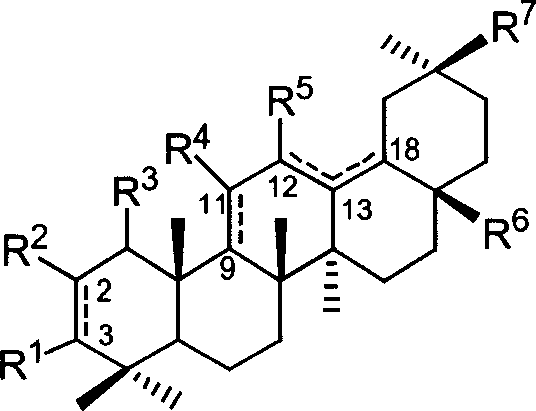
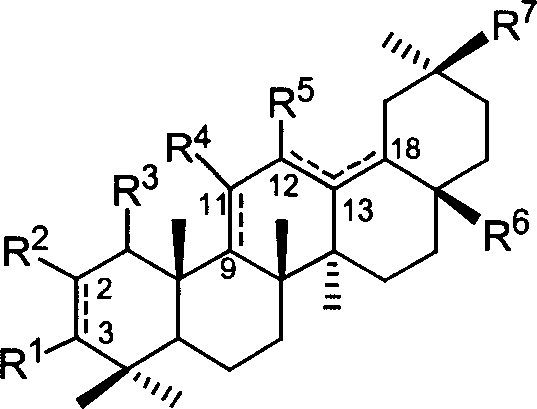
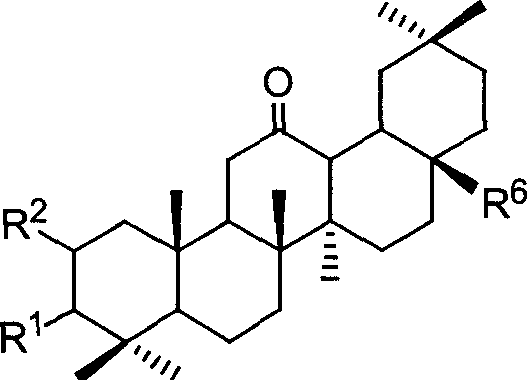
![AFP[158-166] specific TCR gene, its transgenic T cell, and in-vitro proliferation method and use of transgenic T cell AFP[158-166] specific TCR gene, its transgenic T cell, and in-vitro proliferation method and use of transgenic T cell](https://images-eureka.patsnap.com/patent_img/132f86aa-16b8-4790-9684-0ec8e558111e/HDA0000504551810000011.png)
![AFP[158-166] specific TCR gene, its transgenic T cell, and in-vitro proliferation method and use of transgenic T cell AFP[158-166] specific TCR gene, its transgenic T cell, and in-vitro proliferation method and use of transgenic T cell](https://images-eureka.patsnap.com/patent_img/132f86aa-16b8-4790-9684-0ec8e558111e/HDA0000504551810000012.png)
![AFP[158-166] specific TCR gene, its transgenic T cell, and in-vitro proliferation method and use of transgenic T cell AFP[158-166] specific TCR gene, its transgenic T cell, and in-vitro proliferation method and use of transgenic T cell](https://images-eureka.patsnap.com/patent_img/132f86aa-16b8-4790-9684-0ec8e558111e/HDA0000504551810000013.png)
